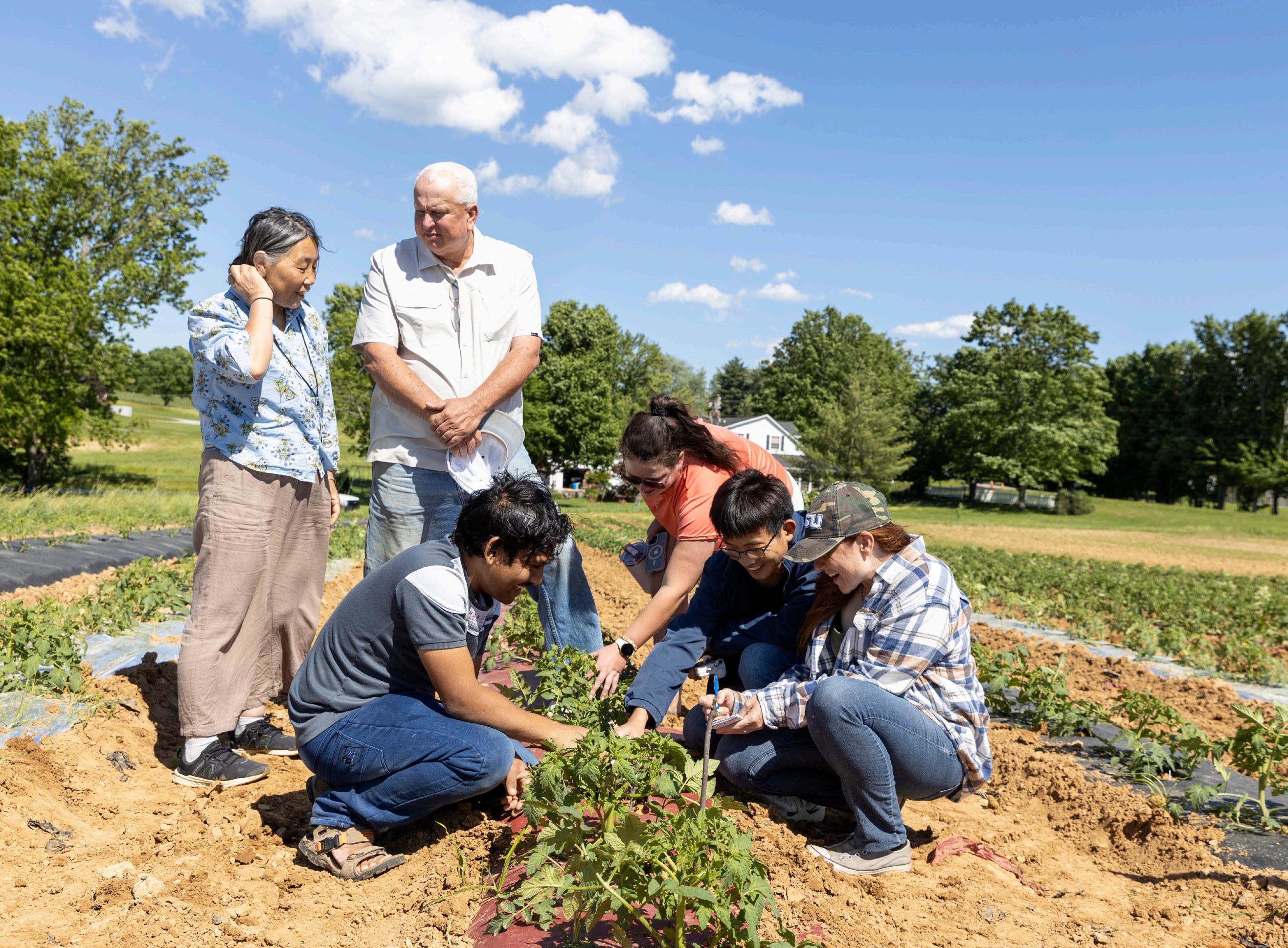
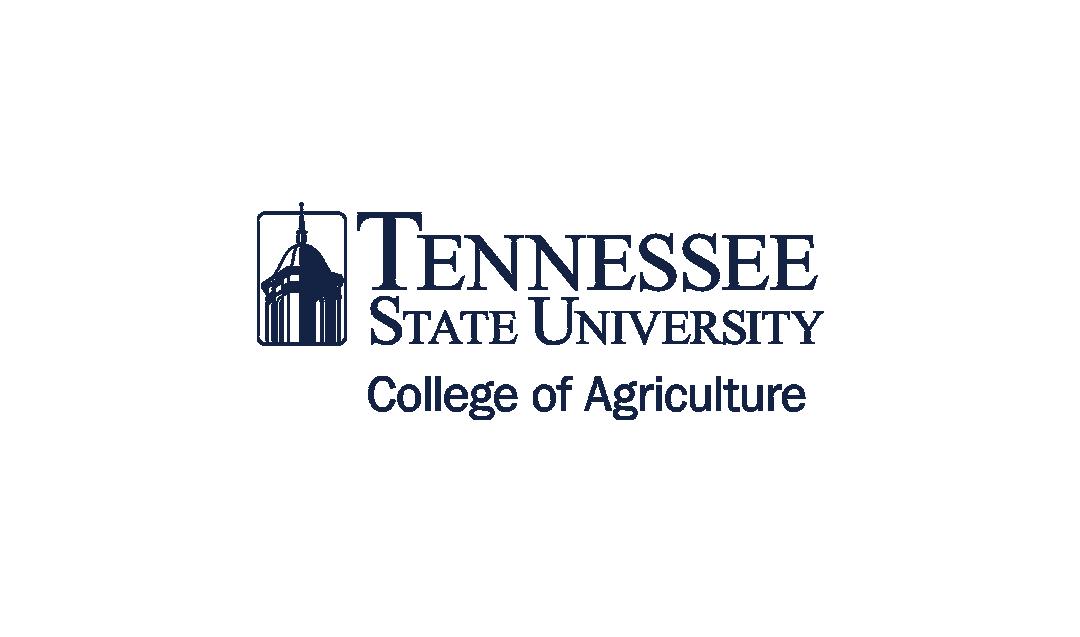
A host of friends, supporters, stakeholders and dignitaries attended the June groundbreaking ceremony for the College of Agriculture’s new Food and Animal and Environmental Sciences Facilities
SEE PAGE 14

June
for the new facilities.






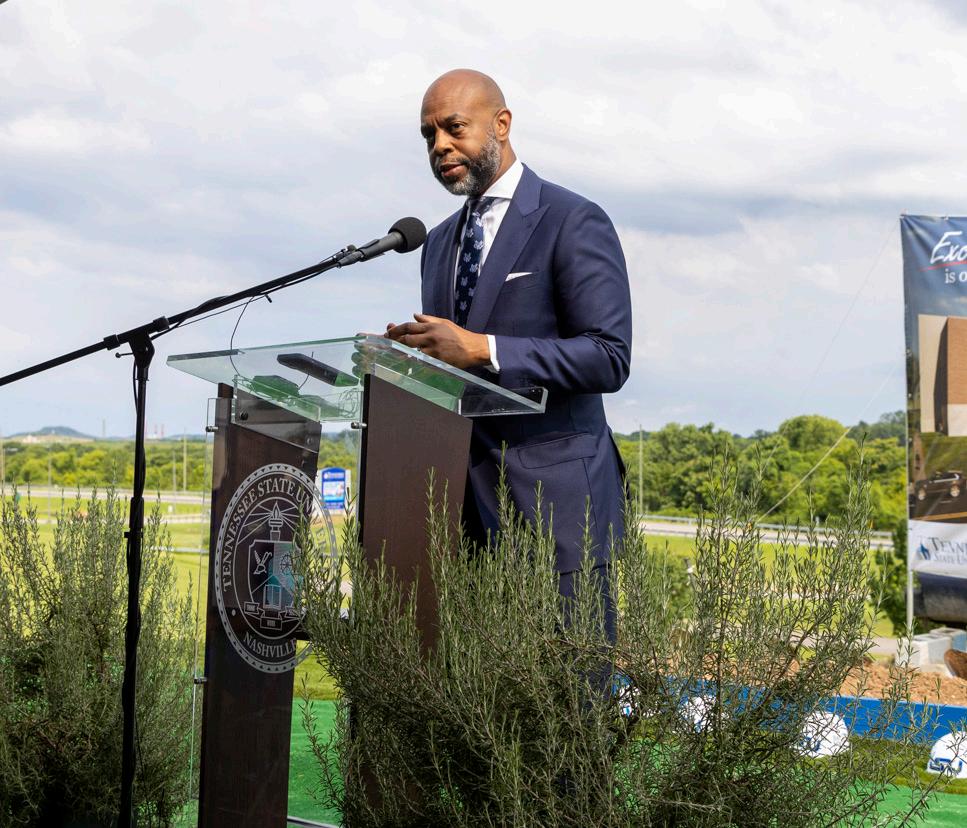





A host of friends, supporters, stakeholders and dignitaries attended the June groundbreaking ceremony for the College of Agriculture’s new Food and Animal and Environmental Sciences Facilities
SEE PAGE 14

June
for the new facilities.










Greetings from the College of Agriculture at Tennessee State University!
This past year has been a pivotal one for our university. With a leadership transition and serious fiscal challenges, we faced a moment that required both resolve and creativity. Thanks to the decisive action of the State of Tennessee and our new President, Mr. Dwayne Tucker, we found a promising path forward. Under President Tucker’s leadership, the university is adopting sound fiscal practices that will support long-term sustainability and success.
Amid these developments, the College of Agriculture has thrived. We opened three new research laboratories, the Legume Molecular Genetics Laboratory, the Urban Forest Ecosystems Laboratory and the Forest Ecology Laboratory - and celebrated the ribbon-cutting of state-of-the-art greenhouse facilities that will serve as hubs for teaching and discovery.
In June, we broke ground on a transformative 110,000-square-foot complex that will house our Food and Animal Sciences and Environmental Sciences departments. This $90 million investment will feature 35 offices, 23 research labs, 17 teaching labs, four classrooms and a multipurpose event space.
Our research continues to shine. In this issue, you’ll find highlights such as “A Noble Mission” (page 42), spotlighting Dr. Suping Zhou’s tomato research, and “TSU the Incubator” (page 36), featuring Dr. Ankit Patras’ public-private partnership. These stories reflect our faculty’s caliber and dedication to research that benefits communities statewide. Our Extension programs ensure these innovations reach the stakeholders who need them most.
Student success remains at the heart of our mission. In “A Credit to the Company” (page 22), we highlight our partnership with Farm Credit Mid-America and its impact on professional development. Programs like Dean’s Scholars, Farm Bill Scholarships, and NextGen support students ready to lead the next generation of agricultural science. We were honored to recognize their achievements alongside President Tucker during our annual student recognition celebration.
On a personal note, I am humbled to begin serving as Chair of the AgInnovation Directors (Research Directors) for the land-grant system in September 2025. In this role, I will advocate for a bold vision to transform U.S. agricultural research and maintain global leadership at a time when other nations are outpacing us in investment.
Thank you for your continued support of Tennessee State University, the College of Agriculture and our land-grant mission. Together, we are building a stronger, more resilient future—for our students, our state and the world.

Chandra Reddy Dean, Director of Research and Administrator of Extension Tennessee State University
Representatives from TSUAg attended the 2025 APLU CARET/BAA Washington Conference earlier this spring. The CARET/BAA Washington Conference gathers delegates from the Council on Agricultural Research, Extension, and Teaching (CARET), administrative heads, section members and stakeholders from across the Board on Agriculture Assembly to engage, learn and go to Capitol Hill to communicate the priorities of the land-grant university system.
It was a dynamic and informative few days in Washington, DC with TSUAg Dean Dr. Chandra Reddy, Communications Director Rod Reed, Tennessee New Farmer Academy Director Finis Stribling, III and Director of County Operations Tom Broyles traveling around with TSU CARET representative James Brown to lobby lawmakers on behalf of the College. TSUAg continues to do it’s part to influence decisionmakers at the federal level.
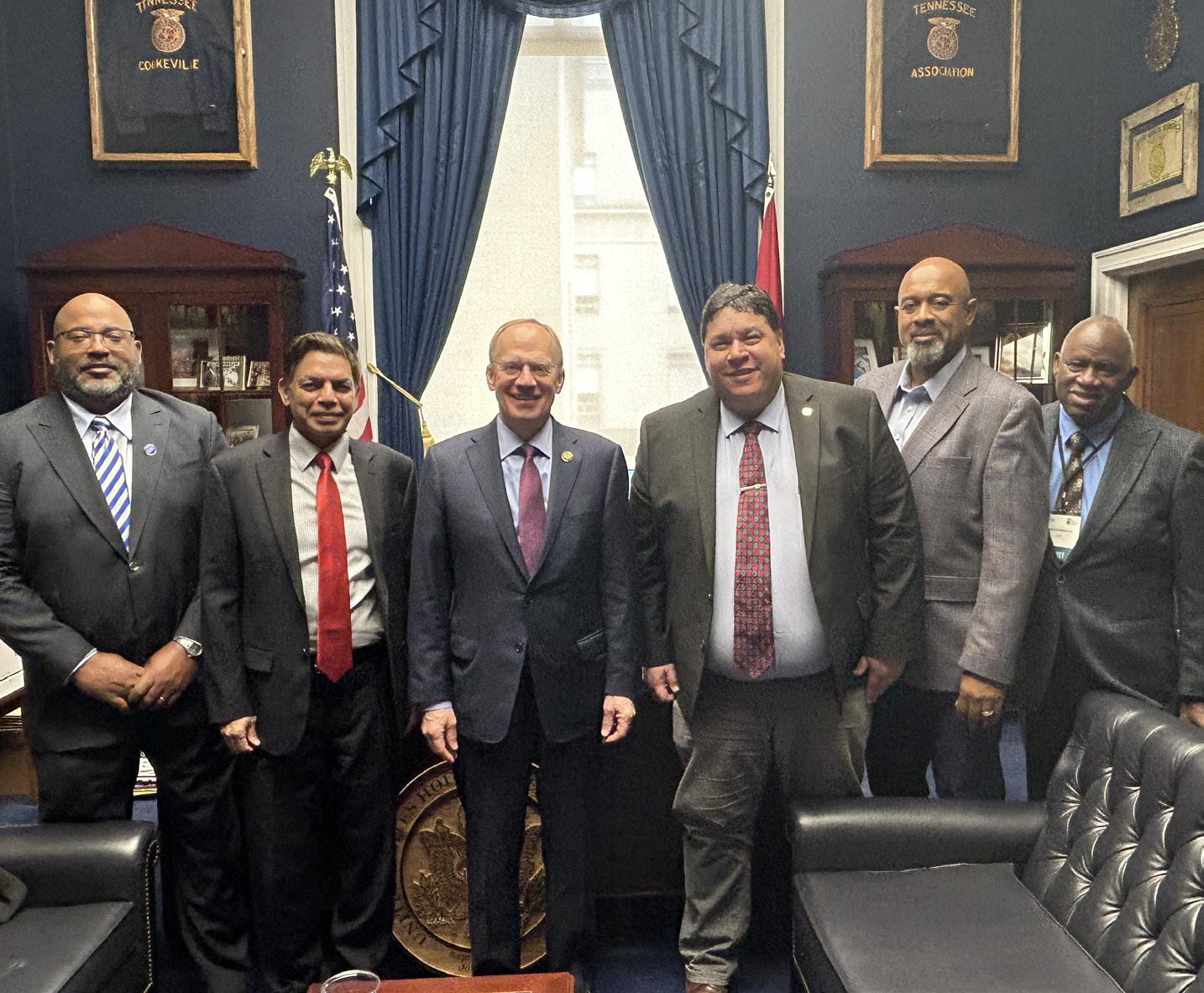
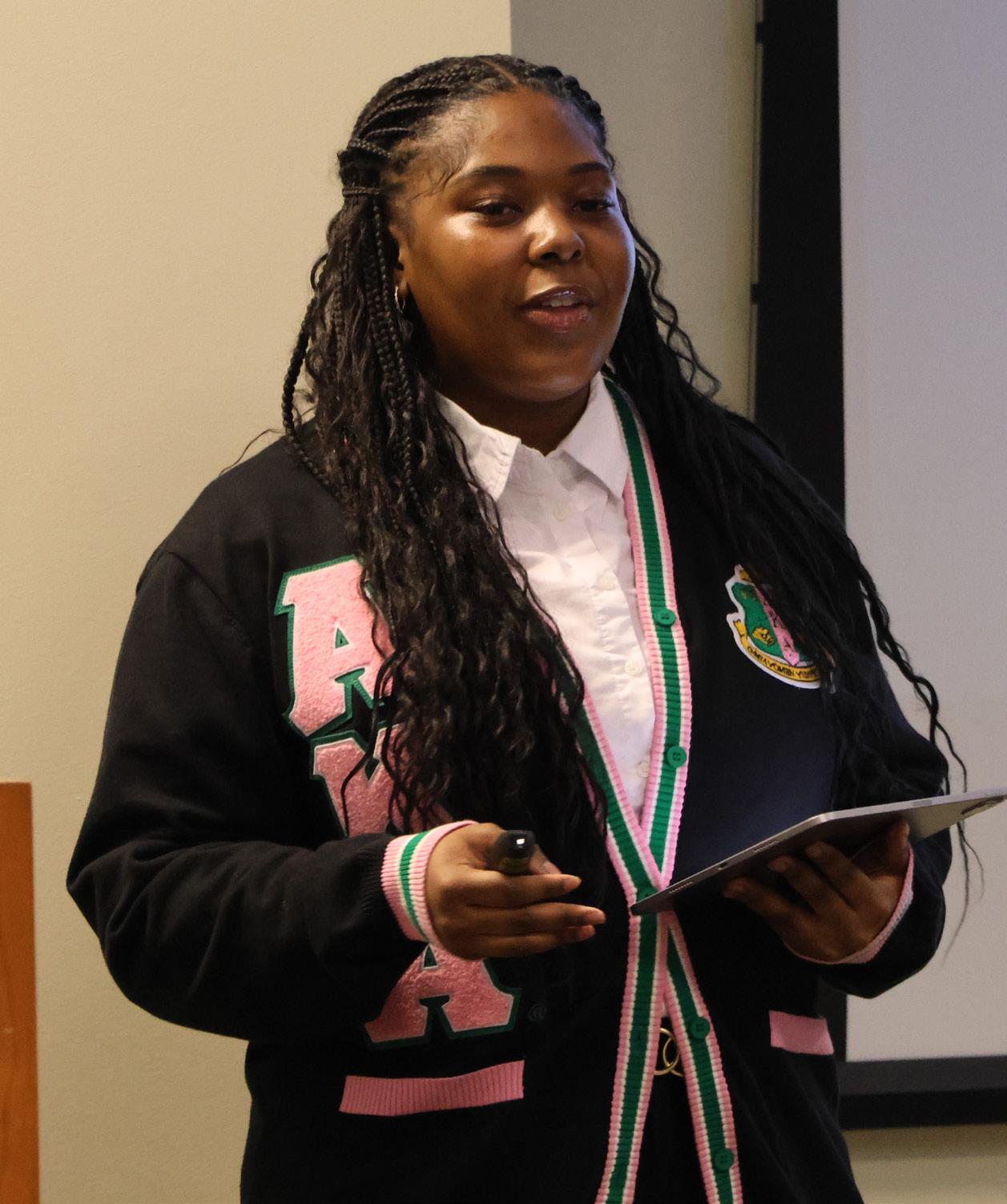
The College of Agriculture had a strong showing at the 2025 TSU University-wide Research Symposium held earlier this spring across the University’s campus. Undergraduate and graduate student researchers, along with research faculty members took their respective turns presenting their research through the oral and poster competitions at the event, held at end of March. Dozens of students presented at the symposium with a handful taking home awards at the conclusion ceremony on Friday, March 28.
Undergraduate symposium award winners from the college included Elana Bodude, who took home first in the overall undergraduate oral presentation, Shania Dean-Motley, who’s poster finished second in the undergraduate awards, and Gabrielle Oliver, who took home third. In the graduate research category, Diksha Tamang and Pratima Subedi took home first in the graduate poster competition, Sabin Shrestha won second place and Onyemaobi Oluchukwu took home third.
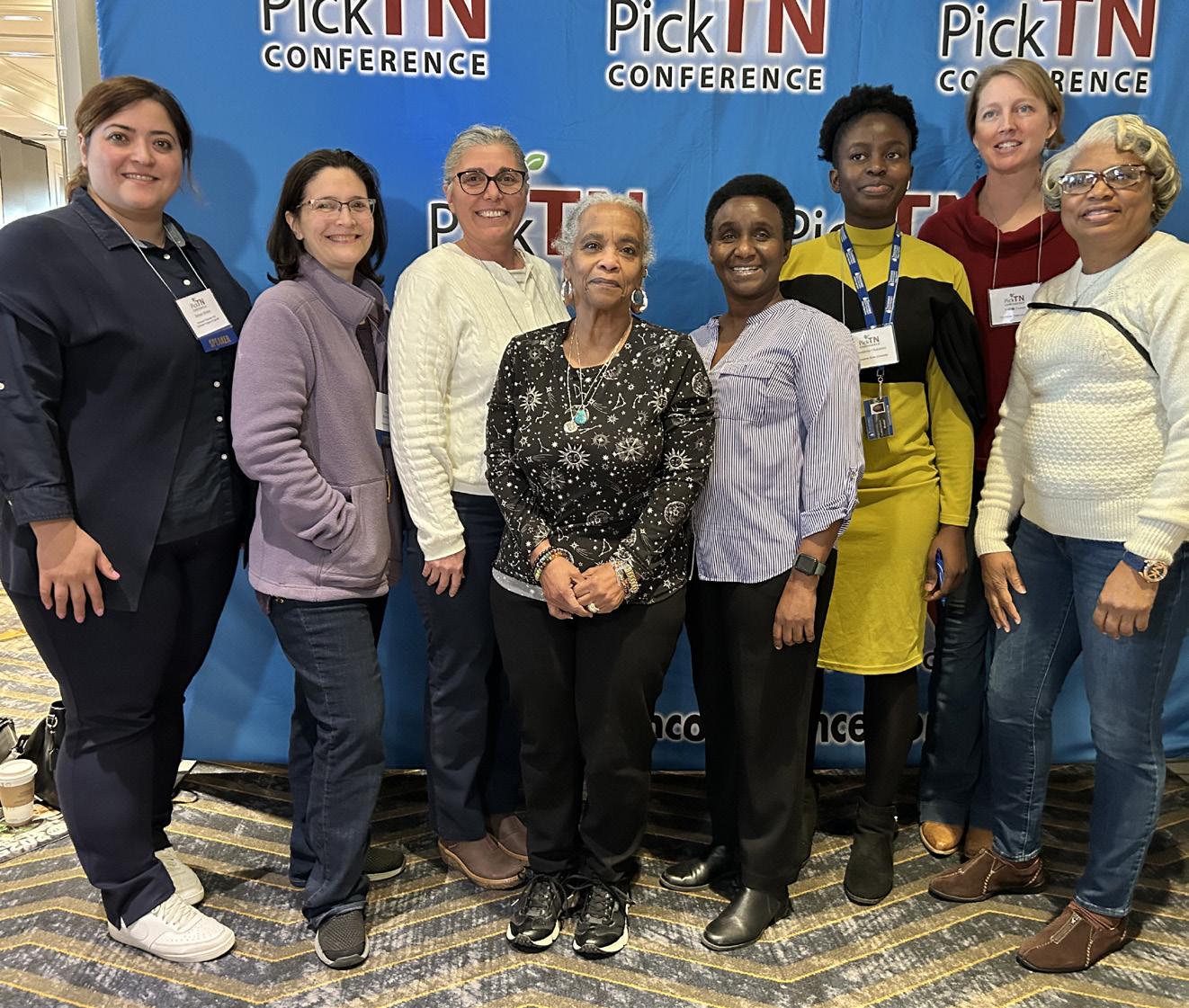
This spring saw a bevy of faculty members, staffers and students from the College of Agriculture play a big part in the 2025 Pick TN Conference, the state’s seminal annual event highlighting locally-produced small-scale agriculture. The lion’s share of our participation in this year’s event came from the research side of things, as a half-dozen research professors from TSUAg presented their research at the gathering, which we co-sponsored.
This year’s Pick TN Products conference featured TSUAg Drs. Behnaz Molaei, Anthony Witcher, De’Etra Young, Fulya Baysal-Gurel, Dilip Nandwani, Jason de Koff and Karla Addesso, amongst others. TSUAg’s sponsorship and presence at the three-day conference was born out of our commitment to the Tennessee small farmer. This year’s networking portion of the conference brought together the College with several partners on future projects.
The partnership between Tennessee’s two land-grant universities was on full display in mid-February when TSUAg hosted our colleagues from the University of Tennessee Institute of Agriculture (UTIA) for the TSU - UTIA Research Summit. The event, the fourth joint research summit, stressed further collaborations in research & innovation to address grand challenges facing our state and beyond. Fifteen faculty in ag, natural resources & environmental sciences from both institutions provided research program overviews.
Subtitled “Strengthening Collaborative Research,” this past semester’s event brought research scientists from TSU and UT to the remote TSUAg research facility, the Otis L. Floyd Nursery Research Center, in McMinnville, TN for a day of presentations and collaboration. TSUAg Dean Dr. Chandra Reddy and UT AgResearch Dean Hongwei Xin were on hand to make welcoming remarks before turning the floor over to over a dozen research scientists from the two organizations on topics such as cattle genetics, soil health, biofuels, cover crops, oilseed crops, and carbon reduction in cities, just to name a few. What remains a strong partnership grows each time we collaborate, and this summit was yet another example.

The Tennessee State University College of Agriculture’s robust financial aid program got even stronger this semester as TSUAg initiated the Dr. Naveen & Suma Srinivas Family Scholarship Program. Dr. Srinivas came to campus earlier this semester to present the first check to kick off the scholarship to University President Dwayne Tucker, College of Agriculture Dean Dr. Chandra Reddy and members of the faculty.
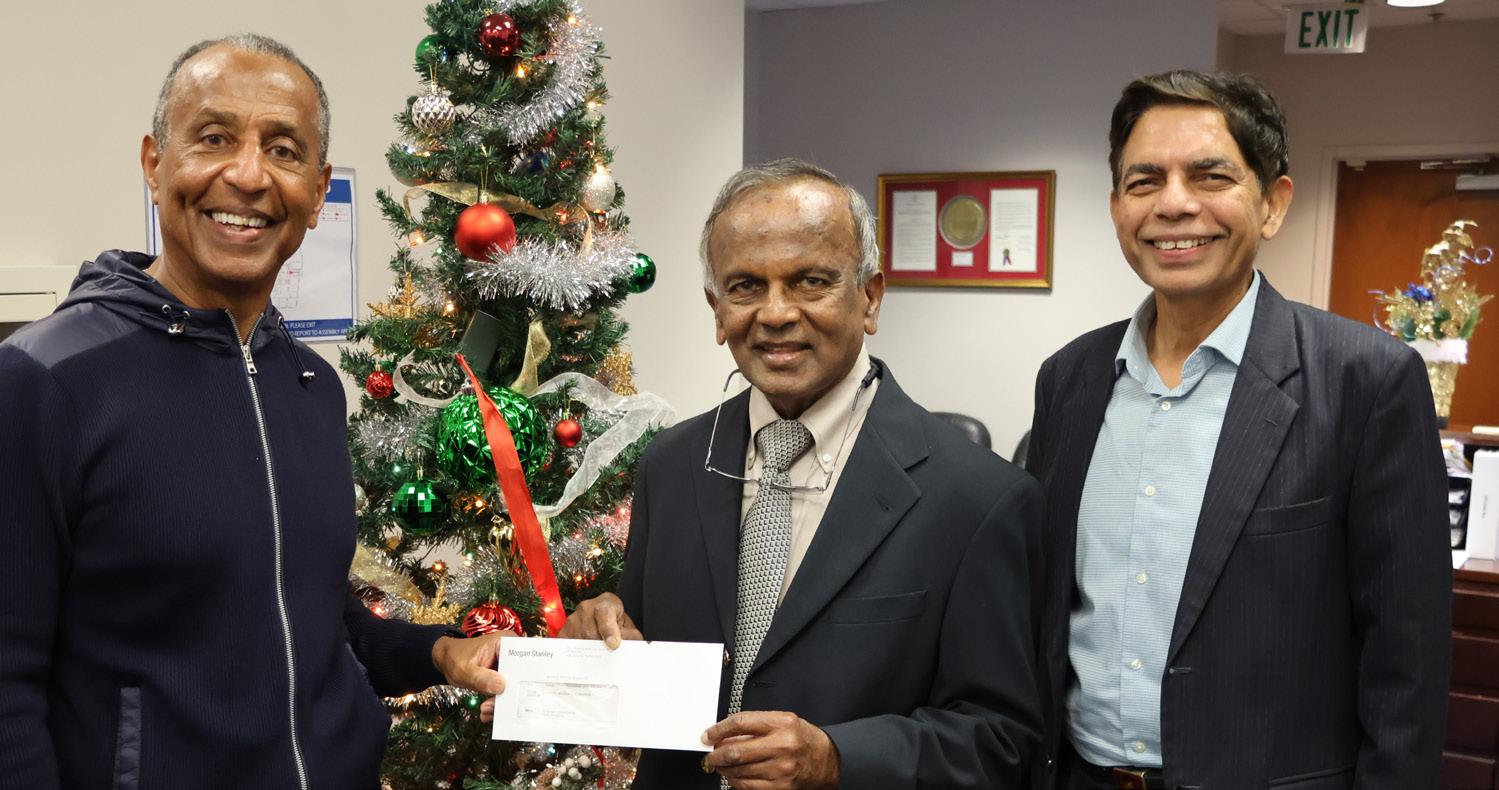
The Srinivas Family Scholarship program is initiated for students who are planning to pursue or are currently pursuing a bachelor’s degree program in the College of Agriculture at Tennessee State University who are academically talented but have financial need.
“We are so thankful for Dr. Srinivas and his family for their generous donation to the future of our College and our University,” said Dr. Chandra Reddy, Dean of the College of Agriculture. “It is on the backs of acts of selfless generosity as you see here with Dr. Srinivas that TSU has built a strong financial assistance program. Thank you to the Srinivas family from all of us at the College of Agriculture.”

The College of Agriculture had a big showing at the 2025 Tennessee Ag Day on the Hill event held on the steps of the Tennessee State Capitol on National Agriculture Day, held on March 18. The annual event, held to recognize the integral role the state’s agriculture industry plays in the success of Tennessee as a whole, gave lawmakers and stakeholders alike the chance to network with public and private sector agriculture stakeholders.
TSUAg managed six individual tables at the event, with TSUAg faculty and staffers rubbing elbows with stakeholders in the state’s agricultural space including Commissioner of Agriculture Charlie Hatcher, Deputy Commissioner Andy Holt and Gov. Bill Lee, along with state lawmakers and industry representatives. TSUAg offered up drone demonstrations, VR technology and an interactive poultry display that was a big hit with everyone.
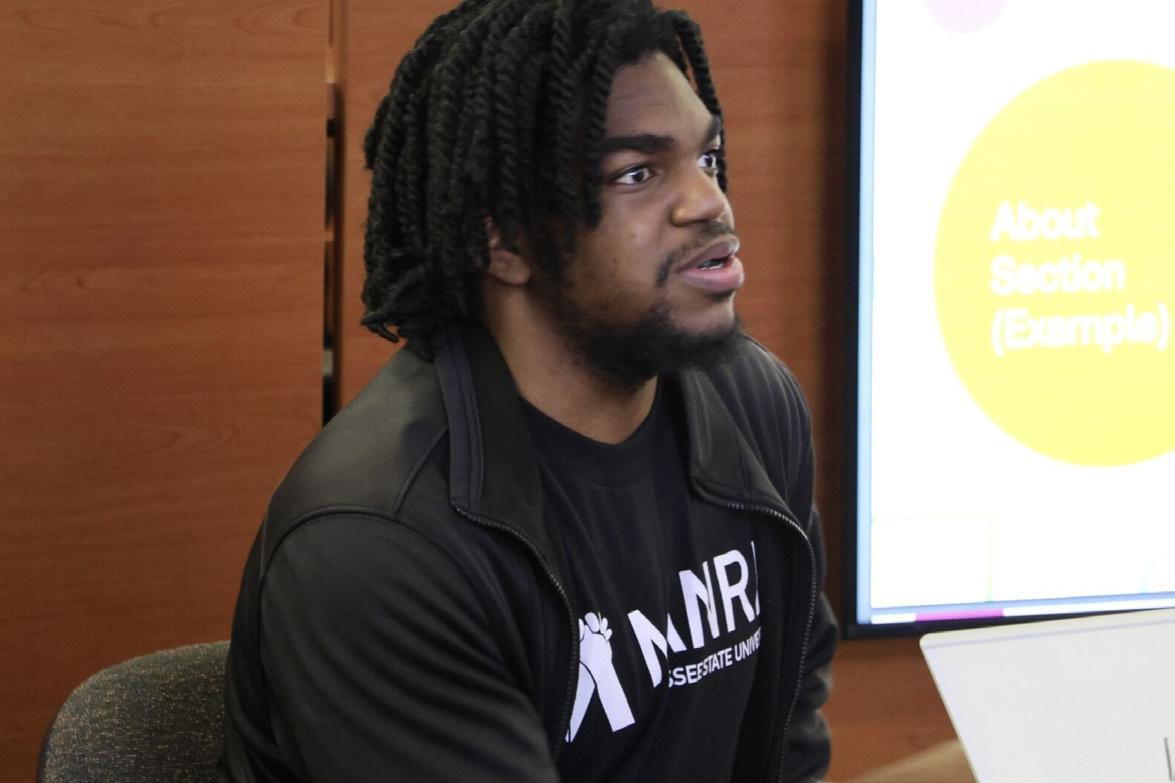
The Tennessee State University College of Agriculture’s most buzzworthy student org of the last year has to be the burgeoning TSU Fashion Society, which enjoyed a successful sophomore campaign this year. The group held a number of well-attended and appreciated events in 2024-2025, including fashion shows, shopping events and off-campus collaborations with other fashion organizations in middle Tennessee. West Memphis-born friends Fashion Society founders Jaylen Turner and Brighton Gillum again put their creative planning, leadership and social media management skills on display all year, as the group held event after well-received event on and off campus. We’re looking forward to to even bigger and better things as the group and its leadership enter year three this fall.
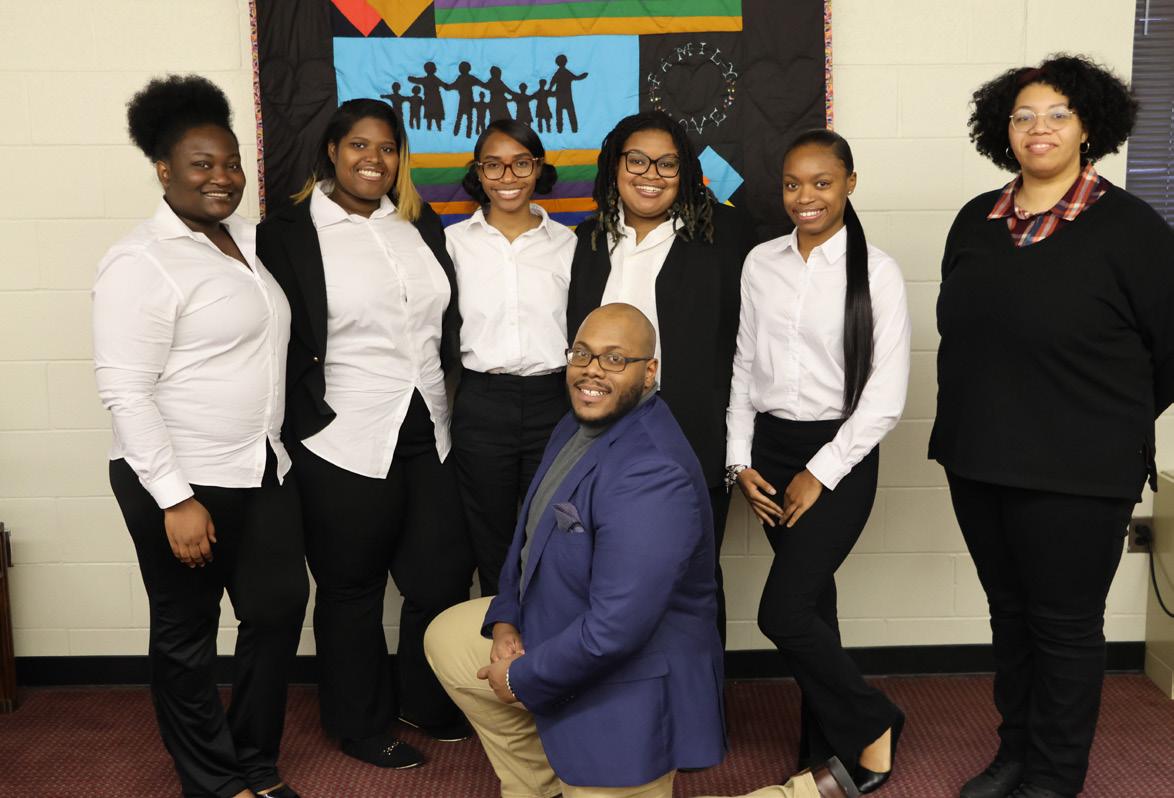
In conjunction with a Tennessee State University College of Agriculture push to actively drive current students and recent graduates to their first positions in the industry while in school and following graduation, TSU’s chapter of MANRRS dedicated a large portion of the 2024-2025 agenda to professional development. The group met innumerable times throughout the semester to engage in discussions about topics like resume writing, LinkedIn and elevator pitches. The chapter, which again in 2025 finished third in the national MANRRS chapter of the year contest, brought informative speakers and faculty presenters for the series, which was wellattended and well-received by a group set on self-improvement. The group had over 10 events in the spring semester alone. Research presentation skills, mastering one’s personal brand, dressing for success and public speaking were all addressed this year.

The TSUAg Department of Human Sciences kicked off the newly revamped and revitalized chapter of the Kappa Omicron Nu (KON) this year. The five new members of KON are new President Olivia Whitmore, Vice-President Tsira Calhoun, Secretary Kristian Butler, Media Manager Miracle Alford and Treasurer Karielle Simmons. The group will be mentored by Dr. Brione Lockett and Extension staffer Marion Mosby. KON is the national honor society for the human sciences, a prestigious organization that recognizes academic excellence and leadership potential in students who study fields that improve the quality of life for individuals, families, and communities. These fields include human development, public health, family studies, nutrition and consumer sciences.
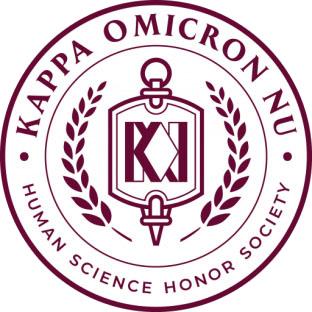
“These student leaders have demonstrated a commitment to scholarship, leadership and research and embody the values of KON and the Human Sciences,” said Lockett of the new class.
Earth Day in 2025 wrapped up what was a busy year for the Tiger Bay Wetlands, with the facility facing a mysterious drainage issue, entering into a potential partnership with Nashville Metro Water and being the subject of a cover story for the Nashville Scene newspaper’s ‘Green Issue.’ Those buzzworthy events aside, Earth Day is always a seminal day of the year at the College’s most dynamic learning environment, and this year was no different.
Dr. Tom Byl’s Agriculture Science 3540 class went on a journey inside and outside of the classroom this Earth Day as the group began the day’s activities with a discussion on art and nature wtih veteran musician Dave Coleman of The Coal Men. “I received only positive feedback about that,” said Byl. “The music was a breath of fresh air for the students and I think it helped them pull back from the fear of exams they had coming up.” The group rounded out their day with a clean-up of the wetlands, removing not only trash such as barrels and tires blown into the water but also invasive plants like Bradford pears and bush honeysuckle.
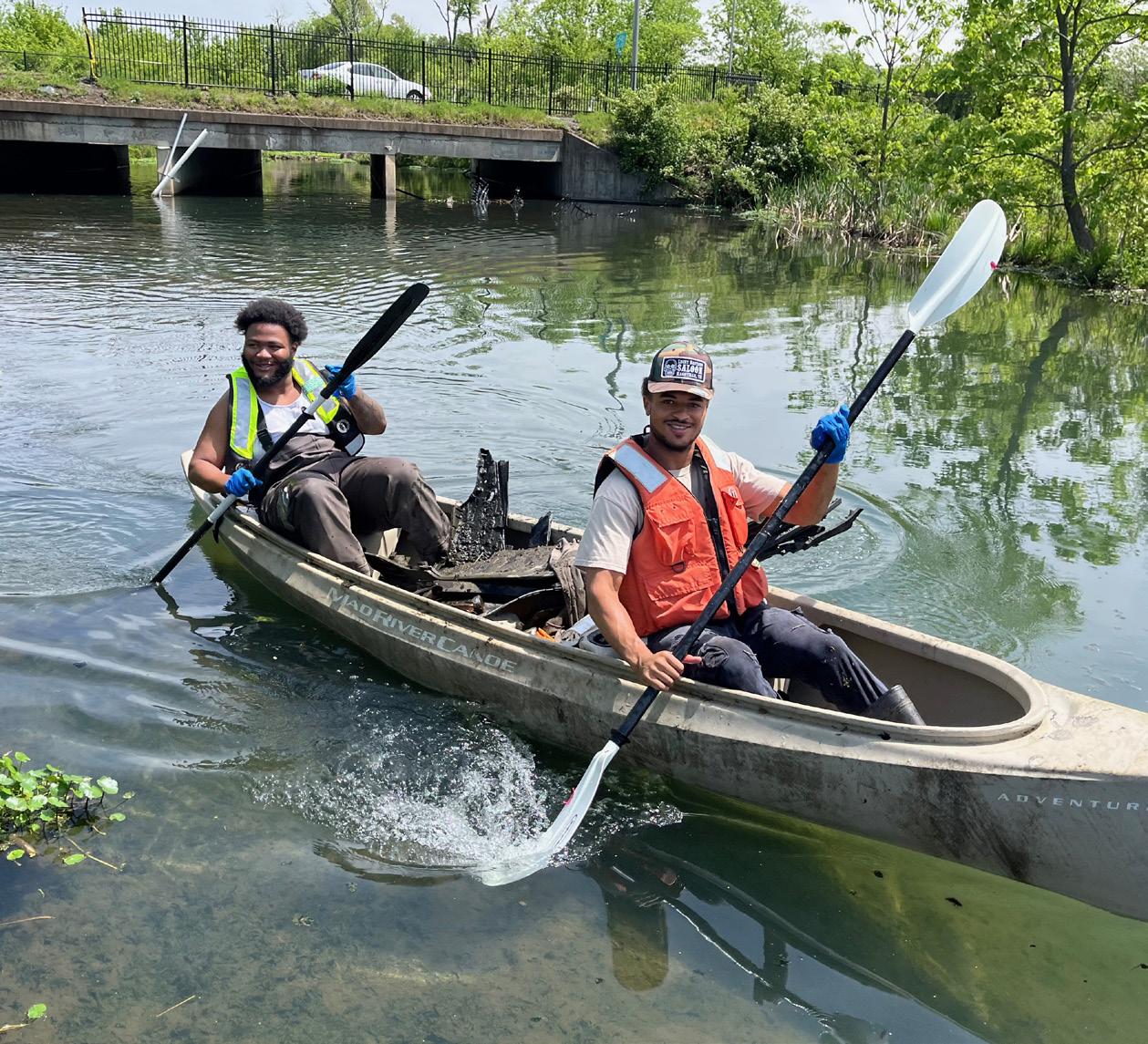

For as long as Tennessee State (TSUAg) has had a university, there has been a Tennessee Academy of Sciences, and at the organization’s late fall 2024 annual meeting of the Academy, TSUAg shined.
TSU legume geneticist Dr. Sonali Roy starred at this year’s meeting, leading the TSU delegation as the 2024 winner of the prestigious Tennessee Academy of Sciences Distinguished College/University Scientist Award. Dr. Roy was awarded not only for her advances in the world of plant science and plant genetics but too for her dedication to leading students along their research journeys. This commendation is given each year to a recipient who “made some significant contribution to science teaching and particularly to academic research in Tennessee over the past year.”
Roy wasn’t the only Tiger to take home hardware from the 134th meeting of the organization, held this time at Lincoln Memorial University in Harrogate, Tennessee, on October 23, 2024. TSUAg graduate student Santosh Kafle took home first place in the agriculture/botany student poster competition for his poster presentation on local organic products and fellow graduate student Manju Yogi won second.
For more information, see https://www.tennacadsci.org/awards.php.
TSUAg’s MANRRS chapter braved intense rains on their trip to Memphis where, for the second year running, the group was honored to be named as the 3rd place winner of the national Chapter of the Year contest.




TSUAg MANRRS recognized as a leading chapter again at group’s 39th national conference |
By Charlie Morrison
The College of Agriculture’s (TSUAg) amazing chapter of MANRRS had a big showing at the organization’s 2025 national training conference and career expo, MANRRS 39, held this year in Memphis from April 2 to April 6. And while the group was forced to brave torrential downpours and high winds that weekend, weather that delayed the TSU contingent’s leaving campus for the event, in the end the bus carrying 49 of TSUAg MANRRS members to the conference made it and the group played a huge part in what was a successful event.
The four-day conference was chalkfull of activities, from research contests to professional development events to networking and leadership development; this year’s MANRRS conference had something for everyone.
For the second consecutive year, TSUAg’s MANRRS chapter was recognized as one of the best chapters in the country with a third-place finish in the national MANRRS Chapter
of the Year contest. In addition, the TSUAg chapter was recognized with the Chapter of Excellence award along with fellow winner and 1890 land-grant university Central State University.
A number of undergraduate and graduate students from the College also did well individually at this year’s MANRRS conference, some taking home scholarships and others placing in national contests.
Beginning with the latter, TSUAg’s Amani Matlock took home third place in the Undergraduate Oral Research Contest at MANRRS 39, a huge accomplishment for the senior who worked extremely hard on her public speaking during her senior year. Fellow public speaking star and graduate student CheKenna Fletcher also performed incredibly well at the conference, taking home third place in the Graduate Oral Research Contest.
Undergraduate Omari Mason also showed up strong in taking home the National MANRRS Theme Contest, as
its 2025 winner. Mason was named the winner of the theme contest for his submission of ‘Leadership to Legacy,’ selected to be the theme of the MANRRS 40 conference,
Scholarship awardees included Emery Minor and Mya Blake, who each took home the MANRRS “Gold” Scholarship, Blake Wright, winner of the John Deere $3,000 Undergraduate Scholarship, and Jhanya Chenault and Sydney Wyche, who were each named winners of the $1,000 Farm Credit VIP Scholarship.
A huge hats off goes out to Farm Credit Mid-America for sponsoring our trip to MANNRS 39 in Memphis. Read more about our connection with Farm Credit on page 22.

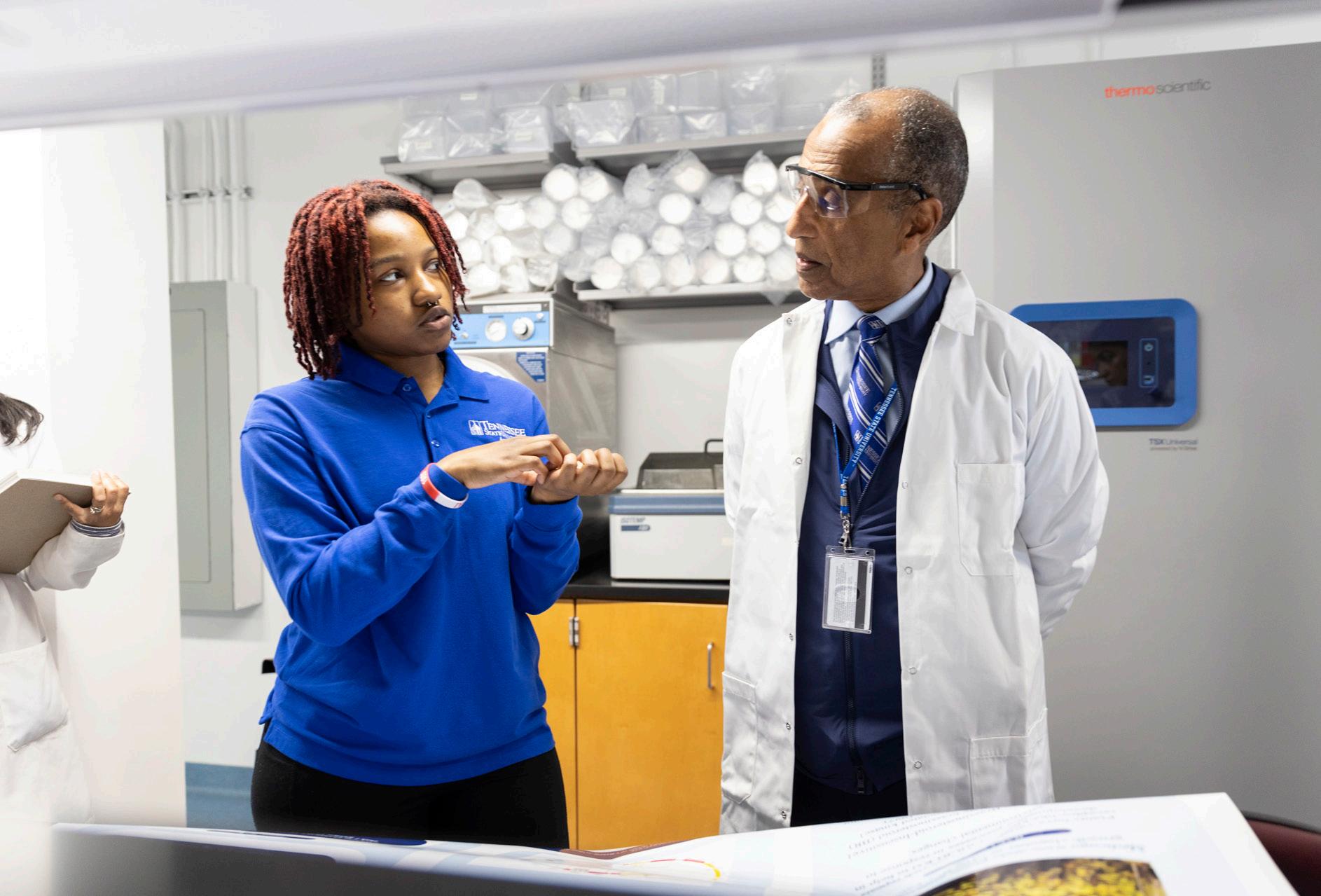
AgLink sat down with TSU President Dwayne Tucker on the University’s turnaround, the College of Agriculture’s role in it, and what drives him to succeed
When Tennessee State University (TSU) turned to Dwayne Tucker to lead the university in December of last year, it turned to one of its own. The North Nashville native was a legacy student before coming to campus, and then a campus-based North Nashville entrepreneur before becoming a corporate executive. And when Tucker came home to campus, first as a member of the TSU Foundation’s Board of Directors then later as a TSU Board Member, and again as the President himself, working for free for the school he’d himself attended, it felt like a family reunion.
Six months into Tucker’s tenure at TSU, the future for not only the University but the College of Agriculture looks brighter than ever. And while Tucker is the first to point out that hurdles remain and will need to be overcome in his next two years as TSU President, he’s optimistic and that optimism is spreading.
AgLink sat down for a few questions with the President. Here’s the state of things in his words:
AgLink: What is the core issue that is most important at this pivotal moment in TSU’s history?
President Tucker: “I have a lot of experience turning around organizations that are underperforming. Most of my experience is from the business world and there are parallels. When you’re not meeting your financial expectations and underperforming as an organization, the number one reason is that you’ve lost track of who your customer is. We lost, at Tennessee State, the idea that our customers were our students. I’m trying to repair that.”
AgLink: And how do you do that?
President Tucker: “We have a lot of challenges at Tennessee State, but those challenges can be overcome with effective leadership. My view about how to reposition Tennessee State for success for the next 100 years is to be very transparent about what we need to focus on in order to be sustainable. That begins by building trust, starting with our students and with all our stakeholders.”
AgLink: The State of Tennessee recently funded TSU to the tune of $250 million. Will any of that go to infrastructure projects at the College of Agriculture?
President Tucker: “Even with the $250 million, and the $150 million that we’re seeking to use for operating costs, in that $150 million is $22 million to complete our commitment to finish the two new agriculture buildings, the new Food and Animal Science Facility and the new Environmental Science Building,” said Tucker. “That commitment is locked in; it’s accounted for in the five-year sustainability plan.”
AgLink: Does your work in the corporate sector and or Lead Public Schools (where he is the CEO) guide what you’ve done and continue to do at TSU?
President Tucker: “Yes and no. I spent more than forty years in the private sector, assuming responsibility for underperforming business units. When you do turnaround work its a different responsibility and it’s a different skillset. That gave me a great foundational base for my work here.
I think the value that I bring is being able to look for opportunities to be more efficient. My job is to get the right people in the right jobs where they can execute our mission. What I think I bring from the outside is a different perspective on how to enhance efficiencies and look at things more from a return on investment perspective.”
AgLink: What would it take 1980 Dwayne Tucker to come to today’s TSU?
President Tucker: “My mother went to Tennessee State, my brother went to Tennessee State, my mother’s brothers and sisters, most of them went to Tennessee State... If you look at the whole legacy of TSU and go back, Tennessee State was a beacon of hope for a lot of individuals in my age group. There are a lot of legacy students from Chicago, from Atlanta that go to Tennessee State because of the history.”
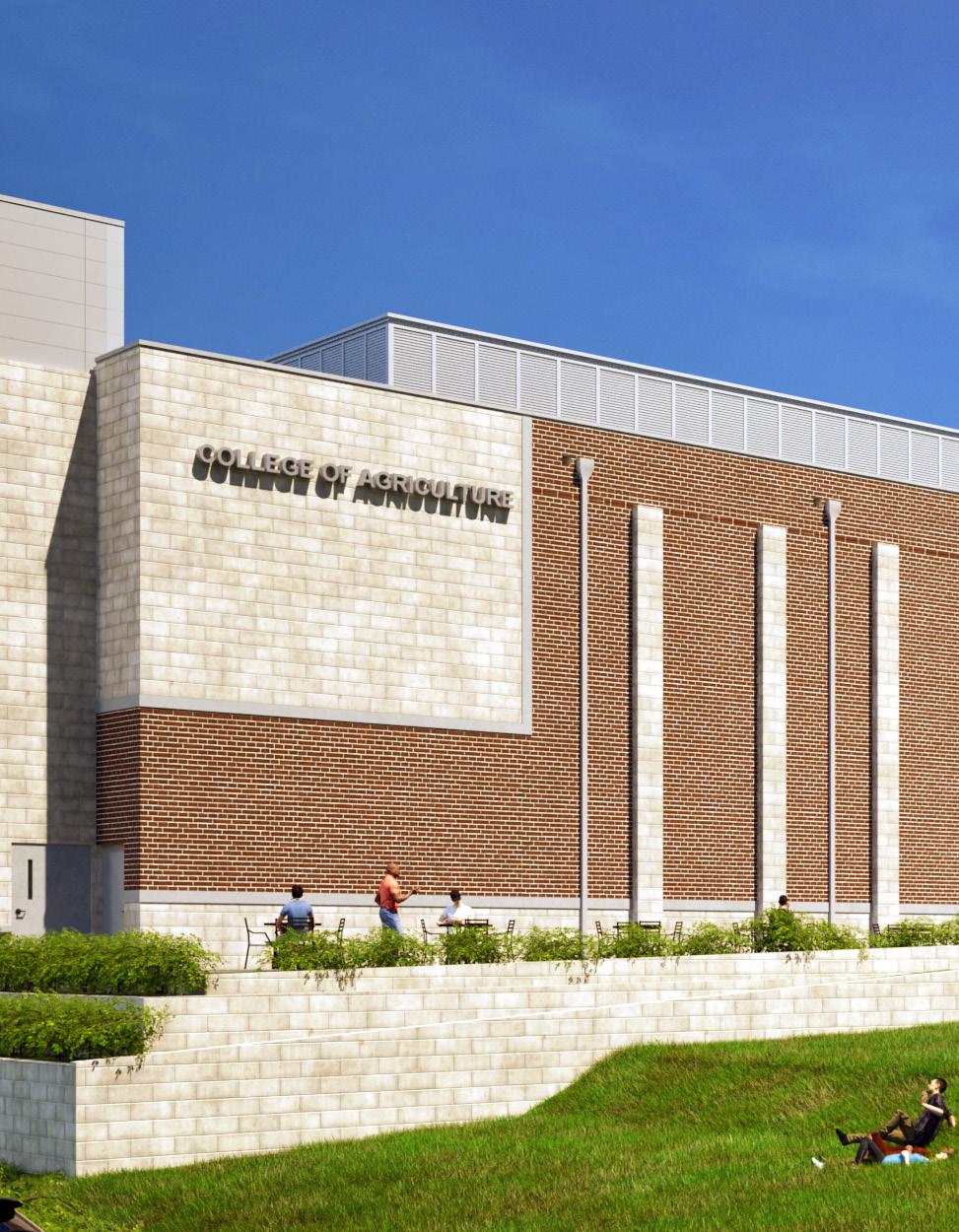
TSU College of Agriculture breaks ground on two transformational new Food and Animal Science, Environmental Science facilities | By
Charlie Morrison
With the plunging of ten, shiny, silver shovels into the sunbaked, ceremonial soil bed on a humid morning in late June, the Tennessee State University College of Agriculture (TSUAg) broke ground on a pair of substantial new facilities to be constructed on campus in the coming months and years, the new Food and Animal Sciences Building and the new Environmental Sciences Building.
With more that 110,000 square feet of learning space that will provide for 35 faculty offices, 23 research labs, 17 teaching labs, a multipurpose room, and 4 classrooms, the $90 million primarily grant-funded development project will enhance greatly the College’s capabilities.
A crowd of over 150 colleagues and contributors from on and off campus, public and private partners with a stake in the success of the College were in attendance for the ceremony, which featured a collection of speakers, the recognition of contributors and dignitaries and a shared, ceremonial dig led by TSUAg Dean Dr. Chandra Reddy.
Sen. Bo Watson, Rep. Harold Love, TSU President Dwayne Tucker and Tennessee Farm Bureau President Eric Mayberry were just a few of many TSU benefactors and supporters to take to the microphone for the event, which
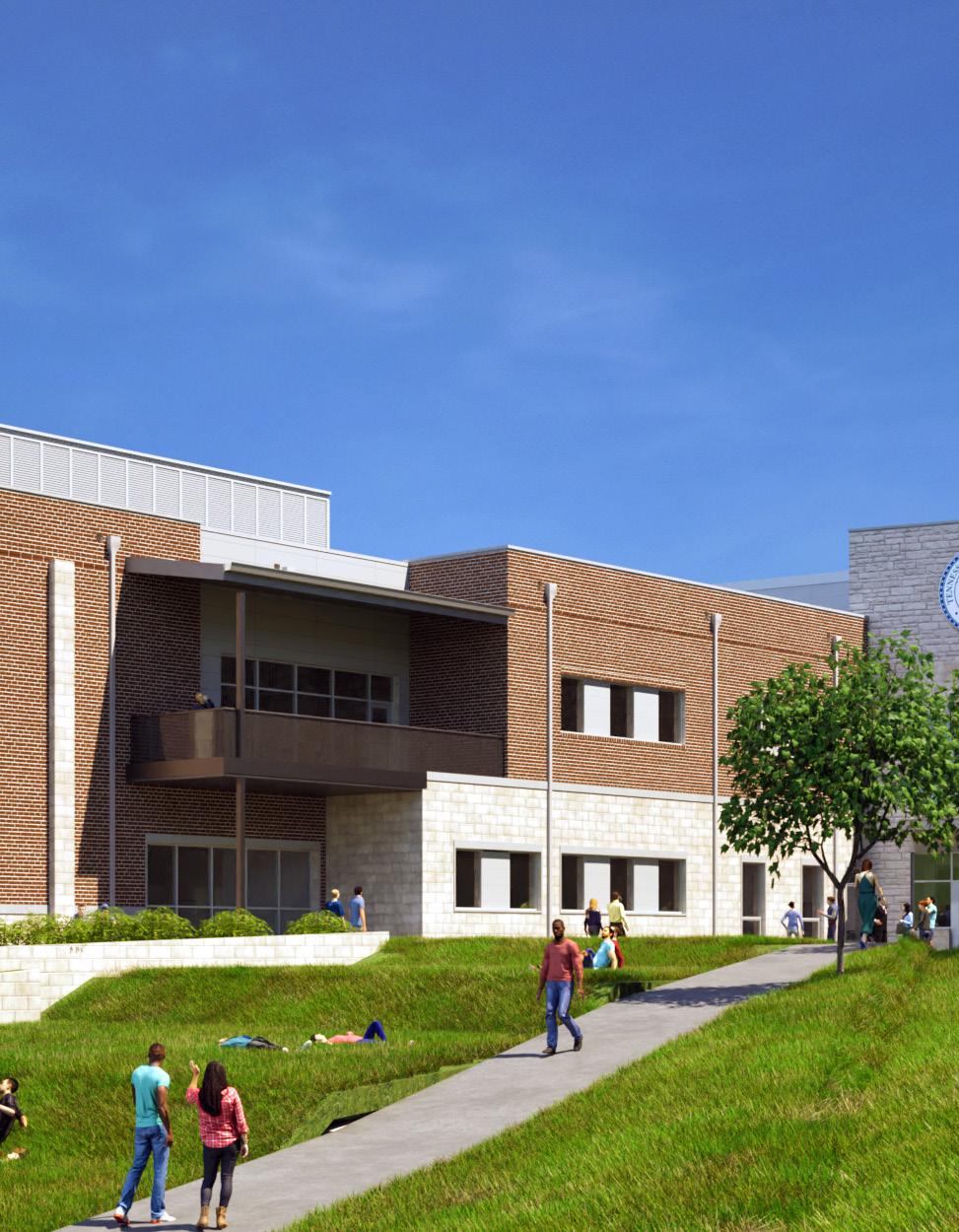
took place in a pair of tents on the site of the new facilities at the corner of Shrader Lane and Walter S. Davis Blvd.
Dr. Reddy framed the event with his comments.
“Today marks a proud and pivotal moment for the College, the culmination of years of vision, persistence and partnerships.” said Dean Reddy in delivering the opening address of the ceremony. “We have been trying to build this facility since 2018. We set it aside after initially designing it in 2018 because the cost escalated. We never gave up on the plan, we persisted and the buildings we’re now planning are much larger and will be even more impactful than we first imagined.”
“That’s the TSU Tiger spirit in action... the resilience, ambition and commitment toward progress,” he continued. “This is a great day, but not just for the College of Agriculture. It is a great day for the state of Tennessee and the communities we serve.”
Each of the buildings will feature a lower level along with a first and second floor. Inside each facility will be research laboratories, teaching laboratories, laboratory support facilities, lecture halls, classrooms, offices, collective workspace and support facilities. For TSU President Dwayne Tucker, the key is what the buildings offer.
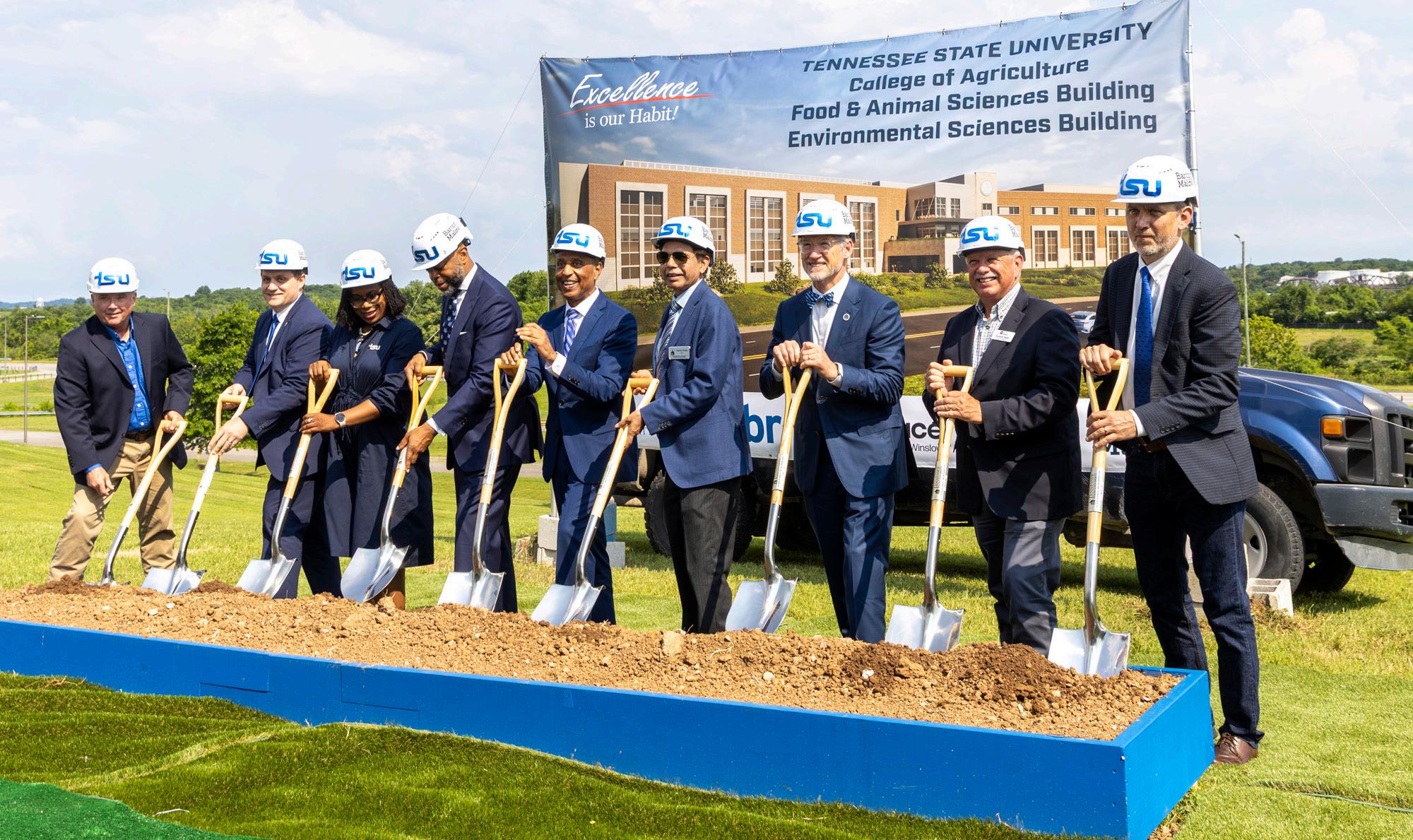
“As we gather here to break ground on a $90 million College of Agriculture complex, we are not just laying the foundation for two new buildings, we are sewing the seeds of innovation and progress,” said Tucker. “This project will serve as a hub of education, research and outreach in the field of agriculture. The state-of-the-art classrooms, laboratories and research centers will empower our students and faculty to explore new frontiers in agriculture science, technology and sustainability.”
Rep. Harold Love, what the buildings offer is important, but important too is what they represent. The event was more than just the ceremonial kicking off of a building process, it was symbolic of the University’s rebirth under a new administration.
held... this says to the world ‘Tennessee State is here to stay.’”
“Agriculture is listed on our state seal because it is one of the fundamental business industries in the state,” said Sen. Bo Watson, who gave remarks at the event. “What we’re doing here today not only represents the academic world, but also in a larger sense represents Tennessee’s commitment to agriculture. It’s a big part of our heritage, it’s a big part of our state.”
This is a great day, but not just for the College of Agriculture. It is a great day for the state of Tennessee and the communities we serve.”
- TSUAg Dean Chandra Reddy
“This building’s journey symbolizes the perseverance of the University. With all of the challenges financially, there was still a commitment to this building,” said Love during the ceremony. “It comes at a pivotal moment when conversations about the future of Tennessee State are being
For Tennessee Farm Bureau
President Eric Mayberry, the event was significant enough to get him off his own farm for the day and over to TSU’s campus here in Nashville.
“There aren’t many farmers in the world but everybody eats,” said Mayberry. “The only way we can keep enough food on the table for everybody is to innovate and grow and prosper in this industry and this building here is going to help bring that about.”
“To have another land-grant university in the state of Tennessee teaching kids learning hands-on in real time is great. You can’t accomplish those tasks that without
buildings like this, without facilities,” he continued. “We’re excited to be a small part of it.”
The groundbreaking ceremony on June 26 will live in the memory of attendees as the moment the project truly kicked off, but in actuality, that event came back in December of 2024 when the Tennessee State Building Commission gave their final go-ahead for the early phase design of the project.
That event, held on President Tucker’s first day on the job on December 16, put on display the prowess of TSUAg architectural partners orcutt | winslow and Kline Swinney Associates. Back in December, Chip Jones (representing orcutt) and Bart Kline (Kline Swinney) each made detailed design presentations to the State Building Commission, and as such, both were in attendance at the June 26 groundbreaking to commemorate the beginning of construction.
“I am excited, on my first day, to see two new buildings approved for the University by the State Building Commission,” said Tucker back in December. “These buildings symbolize the future growth of the University in spite of our current fiscal situation. Today’s actions also demonstrate the Tennessee state government ‘s continued trust in TSU and ongoing support of our future.”
For Reddy, the new facilities dovetail with the College new departmental structure. With now five independent departments operating at the College, students enjoy a hyper-focused learning environment. These new facilities will provide for even more high-impact, research-based learning. “The buildings are very unique for connecting research and instruction, so their construction represents a really great opportunity,” continues Reddy. “From a teaching perspective, we will have the most modern teaching labs out there.”
“Agriculture is a very skill-based profession, not just a theoretical one, so the teaching labs will help us to provide experiential learning for students,” Reddy continues. “With respect to research these buildings will accommodate the future One Health Center, the future Precision Agriculture Center, the future Soil Health Center and the future Water Management Center so that we can assist Tennessee agriculture and its citizenry better.”
With the design phase of the project wrapped up, construction begins in earnest this summer. The goal is for the new facilities to open their doors to faculty members and students for the first time in the fall semester of the 2026-2027 academic year. AL
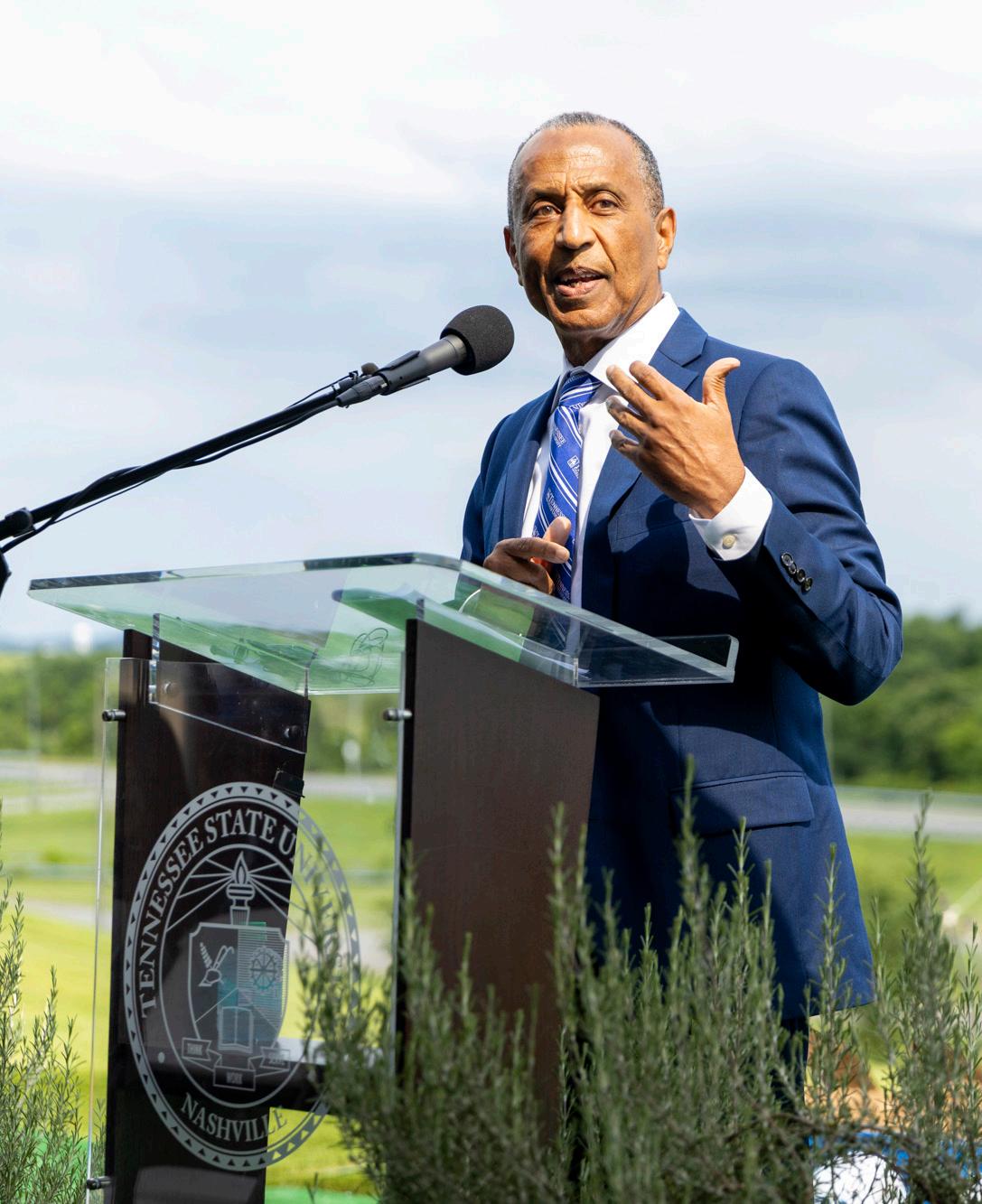


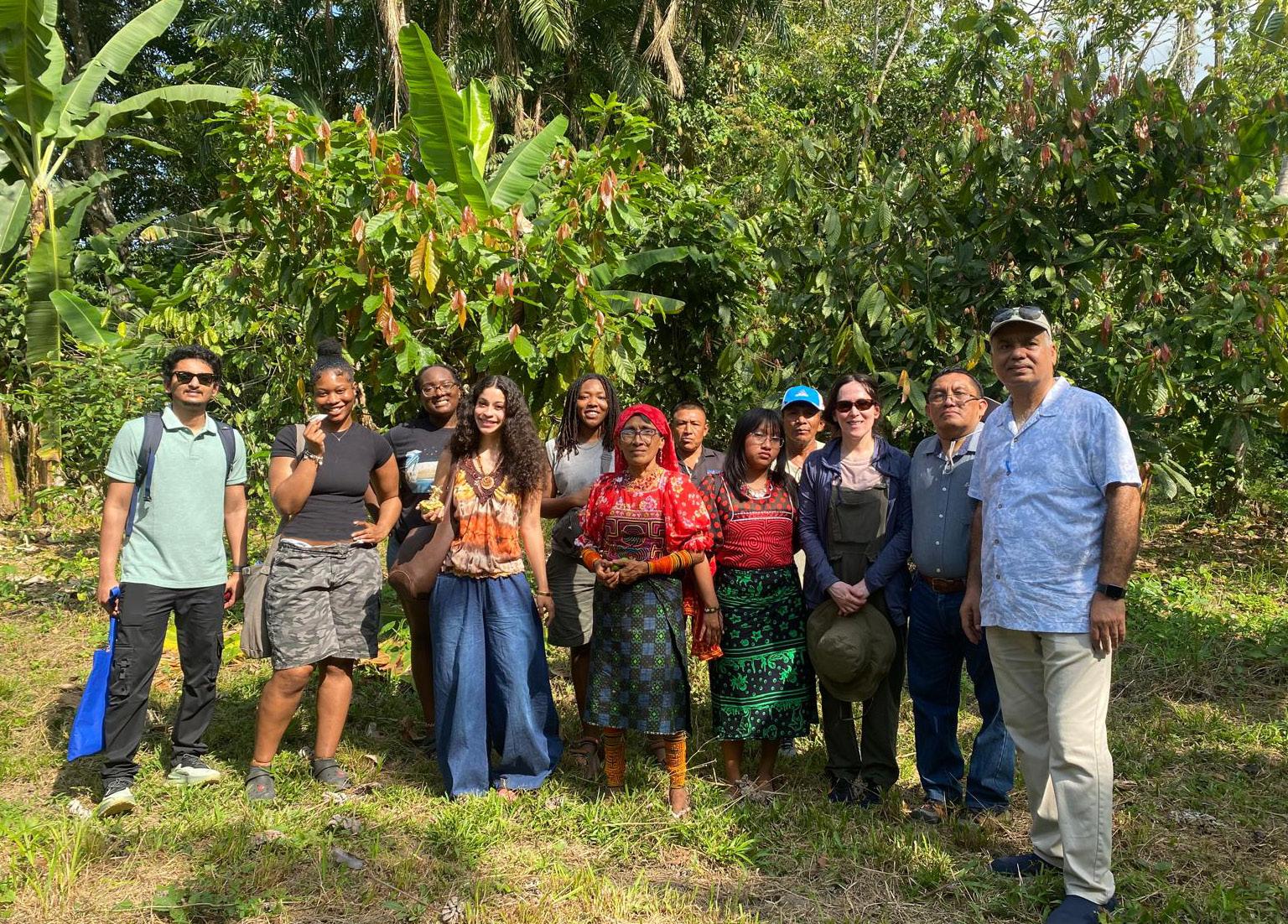
Recent TSUAg study abroad trip brings cohort to the nation of Panama | By
Charlie Morrison
TSUAg students and faculty members wrote the latest chapter in the College’s anthology of study abroad programs earlier this spring, when in March, Dr. Dilip Nandwani led a handful of undergraduate and graduate students from the College to the isthmus nation of Panama. The week-long trip was a collective eye-opener for the group, as it shined a light on small-scale agricultural practices outside the U.S. and put book-learned concepts into a realworld context.
The College has a long tradition of utilizing study abroad to bring academic concepts into the real world, and the world
outside of the U.S., and this trip was no different. Over the course of the week, students went hands-on with topics such as clean water, microplastics, soil health and even socioeconomic responsibility. The group examined the role of governmental intervention in indigenous farming operations and weighed the import of scientific study in the world of the small-scale farmer.
The ostensible purpose of the trip, undertaken in partnership with the University of Tennessee and funded through a National Science Foundation grant, was to better outcomes for small-scale farmers here in Tennessee and around the
world, many of whom have farming operations that are highly dependent on traditional food, water and fertilizer solutions and who are highly vulnerable to adversity.
The Panama trip was one of what Dr. Nandwani hopes are several opportunities to examine the potential of food-energy-water “nexus” solutions to assist small-scale agricultural operations. Dr. Nandwani was joined on the trip by undergraduate students Aaliyah Cotton, Elena Bodude, Grace Colvin and Iveriana Gaskins, along with graduate student Sai Prakesh Naroju. What kicked off in Casco Viejo, the old part of Panama City, turned into a whirlwind tour of the country, its agriculture and its people.
The Technological University of Panama served as the host institution for the trip, and the initial days of the journey were spent touring labs, speaking with agriculture leadership and viewing the facilities of the university. A visit to the university’s waste-to-energy facility brought topics of manure removal and environmental conservation to the fore, but that was just the beginning.
After hitting the road for the countryside of Aguadulce the group toured coffee, cacao and tropical fruit plantations along the Ciri and Trinidad Rivers sub-basin. There, the group focused on the role of bio-fertilizers in small-scale organic farming, organic crop production and microplastics. Later, the group brought the knowledge full circle by visiting the coffee processing plant in Las Gaitas.
In Gamboa, Panama the group jumped on a boat and headed out to the Smithsonian Barro Colorado Research Station where they took a tour of the renowned research facility.
The trip came full circle when the group returned to Panama City to tour and learn about the workings of the mighty

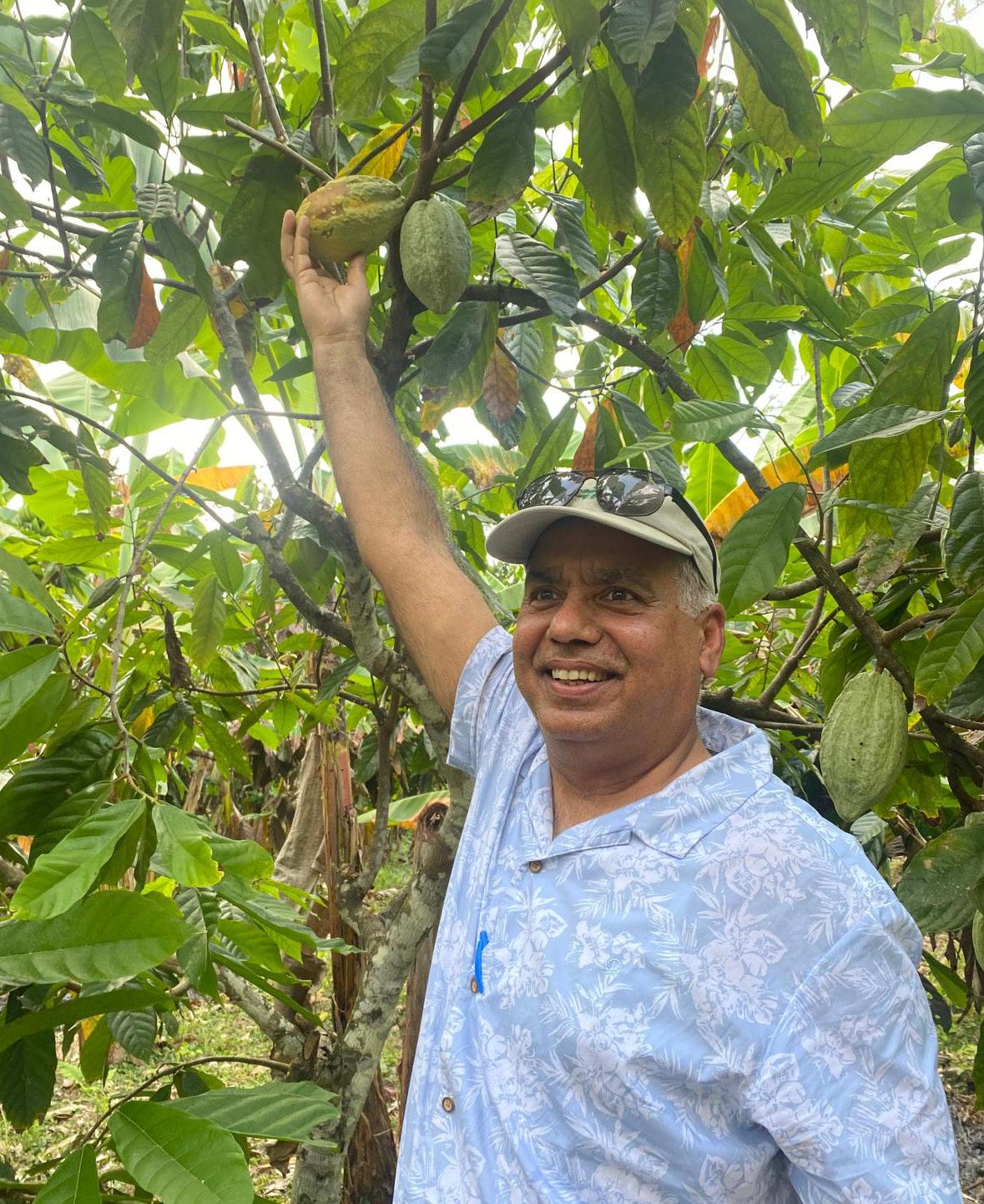
Panama Canal. Using the example of coffee, the group had seen organic coffee bean production, harvesting, processing and once they’d laid eyes on the huge cargo ships gracing the canal, distribution.
“The students learned about horticultural and agricultural science, especially the organic production of tropical foods, and how things are made,” said Dr. Nandwani, who was recently named an American Society of Horticulture Science ‘fellow.’ “They tasted chocolate made from the cacao they witnessed, they drank coffee made from beans they saw. They saw how coffee is processed from production to packaging to distribution.”
The students, for their part, walked away from the trip fulfilled, educated and exposed to concepts they’d learned about in the classroom. “What I got out of the trip was clarity that green jobs are still very much needed. There’s a lot of work to be done in places like this with the indigenous communities,” said senior environmental science major Aaliyah Cotton. “It really helped me narrow down what I want to go to graduate school for, our water crisis is worse than I thought. I do research on that locally, but to see it on an international scale was alarming.”
“This was my first international trip, and I really enjoyed it,” said Sai Prakesh Naroju. “Learning traditional way of growing from the indigenous people of Panama was the best part. It was really nice.”
Williams’ work supporting research projects out at “the Farm” was integral in TSUAg securing and taking on innumerable research projects that require infrastructure to carry through to completion.
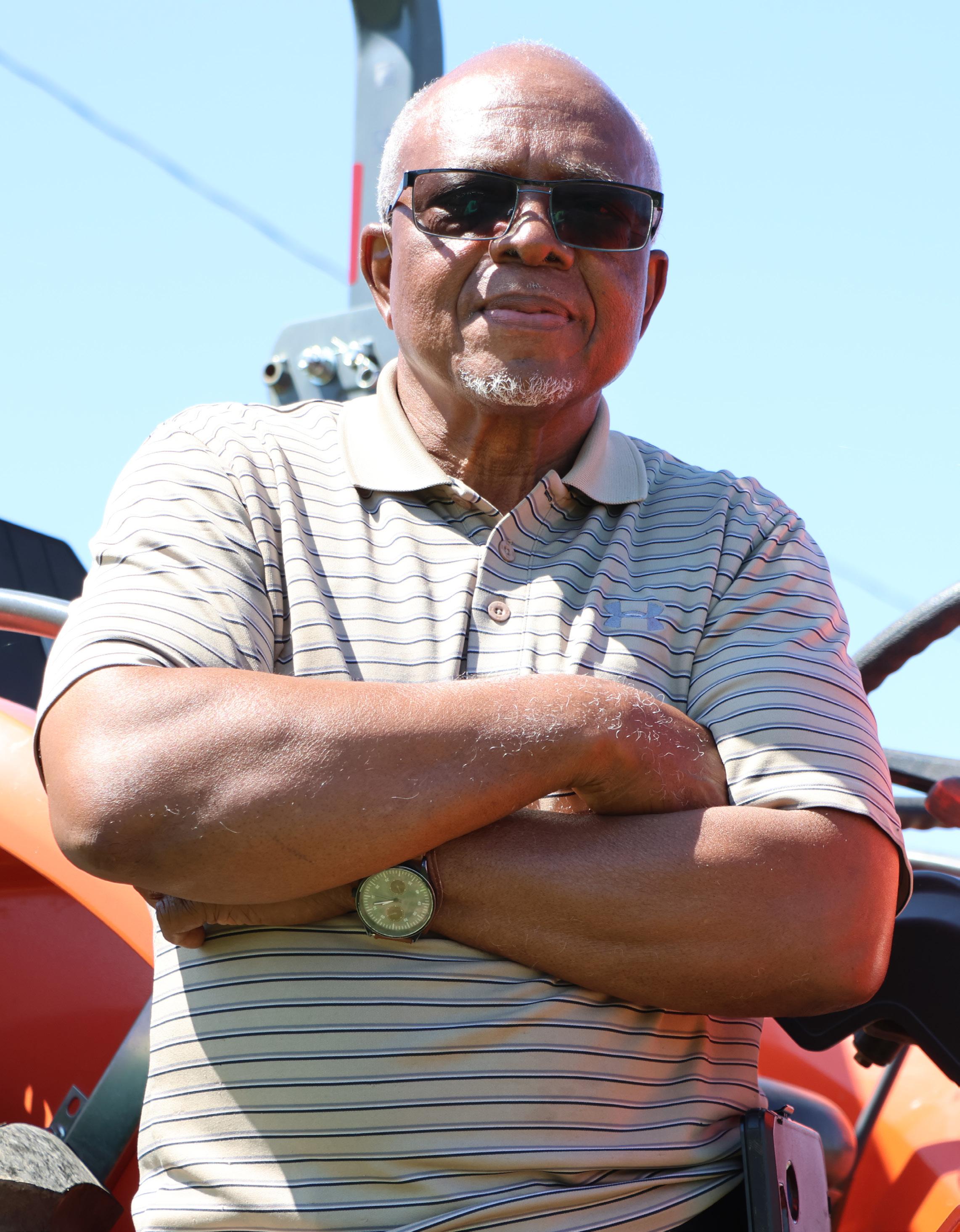
TSUAg says goodbye to favorite son with retirement of AREC Superintendent
The story of how Tennessee State University College of Agriculture (TSUAg) built itself into one of the nation’s premier land-grant research institutions is a tale that has taken decades and involved thousands. It’s a story with many heroes, some of whom have claimed the spotlight, and others, like longtime Agriculture Research Education Center (AREC) Superintendent Eddie Williams, who have shunned it.
In April, however, the spotlight finally found Williams at the FarrellWestbrook Auditorium, where 45 years to the day since he started his work at the College, his peers and colleagues had gathered to celebrate his retirement. A career that transcended the decades, the deans, the projects and most of the people Eddie has started with had come to an end, and what a career it was.
To say Williams’ time spanned a mere 45 years at TSUAg is a misnomer, as he was recruited out of high school to come to the College. Having first arrived on campus in 1972, Williams spent more than a half a century at the College of Agriculture. His brother John started at the College in 1969, beginning what was for the Williams family a complete commitment to the College.
The Williams brothers were the sons of Fayette County, Tennessee sharecroppers who had suffered the indignity of being removed from their generational home like so many Black sharecroppers had been in the 1950s and 1960s after exercising their newfound right to vote. Homeless, the family lived and worked at one of three famed West Tennessee “Tent Cities.” As such, the Williams brothers brought a wealth of both life and agriculture experience to TSUAg, John in animal science and later Eddie, who pursued plant science.
Summers spent in a student work program with what is now the USDA’s Natural Resource Conservation Service (NRCS) further set Eddie up for success, and following his graduation from TSU as an undergraduate in 1976
and as a master’s student in 1979, he joined the organization. In the end however, Williams came home, settling at the College for good in 1980 as a research assistant.
Williams’ work as a research assistant spanned 15 years. He worked on projects with a handful of Principal Investigators such as Mr. William Haslett, Dr. Carter Catlin and Dr. Troy Williamson, projects that took him to the “Farm,” the AREC, for project management.
It was there that Williams truly found his niche, however, as his skill set fit perfectly the new direction TSUAg was looking to take in the late 1990s, keying in on more advanced research. The facilities themselves needed to be cared for, developed and prepped for research projects. In stepped Willims, who became the de-facto and later official superintendent of the facility.
It was a position Williams, with his extensive knowledge of the needs of working researchers, thrived in.
“Just knowing what the researchers expected was the key,” said Williams in an interview with AgLink. “I already had that experience, so I was ready to hit the ground running and do the job well from the get-go.”
“And then the other side of it was that I wanted to help people, I wanted to help students,” Williams continued. “I could have gone other places to work but I didn’t, I stayed where I was. I had been here all these years, I knew the people and I loved this place, these people.”
It was the role of a lifetime for Williams. Not only did he oversee massive transition at TSUAg and particularly out at the AREC during his tenure, he was there, always there, for even the most trying times. Williams was one of the first on site after the 2010 flooding inundated the facility and during the 2020 tornado, he was on campus in the middle of the night looking after things. “The tornado was a rough situation. I lived about six miles away then and I had to get out of my street first just to get down here,” he said. “We were just thankful nobody got killed,” said Williams, whose bravery was further tested in serving as the point man with the insurance companies, too.
For Williams, he gave much to TSU, but received a great deal in return as well. “Looking back, I know now was the right time to go. I’ve done my part, I helped some people out along the way and now I go forward. And on the topic of the kids,” he continued with a smile, “I helped some of them out... okay, a lot of them.”
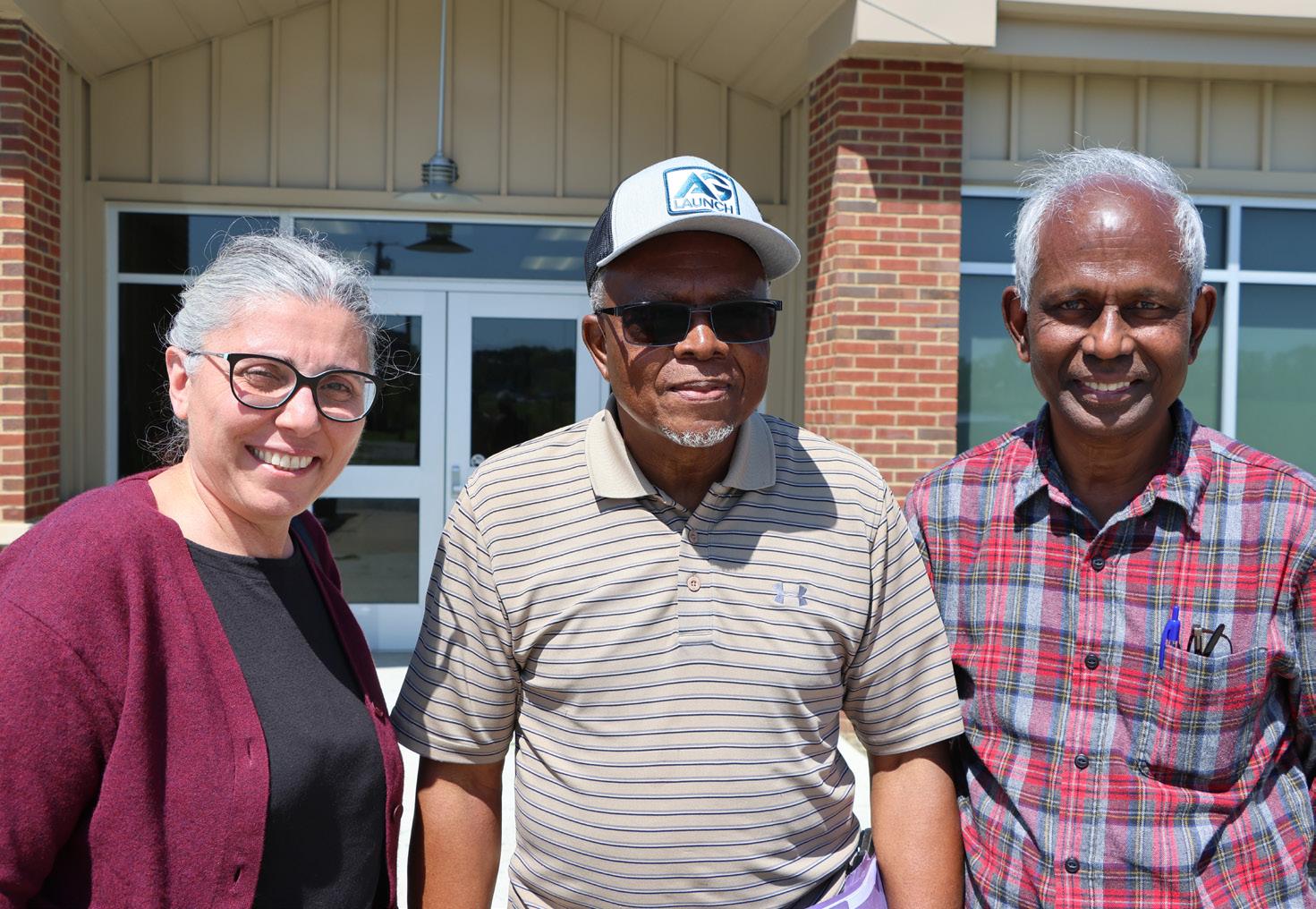

“
I’m proud to witness Farm Credit Mid-America’s role in securing the future of agriculture by helping the next generation prepare for successful careers in this vital field.””
-
TSUAg Advisory Board Member and Farm Credit executive TJ Jamerson
Contingent from TSUAg Takes to Farm Credit Mid-America HQ for formative visit | By
Charlie Morrison
At the core of the academic mission of the College of Agriculture (TSUAg) is a dedication to workforce development, the concept of delivering to the agriculture sector graduates who have been exposed to the real world of science and business. In that vein, a cohort of students and faculty members from the College took an important trip earlier this semester to visit critically important partner Farm Credit Mid-America (FCMA).
With a goal of exposing students to one of the most important companies in the corporate agriculture space, faculty members from the Tennessee State University College of Agriculture led a group of six students from the College in February to FCMA headquarters in Louisville, KY.
The trip fit into one of the many facets of the company’s “Pathways to Success” program, FCMA’s effort to “(grow) the leaders of tomorrow through youth investments, scholarships, on-campus programming and farm and financial readiness training and support.” Students who made the trip experienced an incredible opportunity to explore the world of agriculture and natural resources, connect with industry professionals, and have a great time.
The TSUAg contingent joined their colleagues from Kentucky State University, Purdue University and the University of Kentucky in participating in workshops and seminars and networking with Farm Credit professionals.
The group additionally met with various agriculture industry leaders, enjoying engaging sessions on leadership,
career planning, and the latest industry trends, fun activities and panel discussions with Farm Credit MidAmerica employees and executives.
“All in all, it was a fun, productive trip for our students,” said Dr. De’Etra Young, who as the TSUAg Associate Dean for Academics and Land-Grant Programs, led the excursion to FCMA. “Exposing these promising students to real-world agriculture industry partners like Farm Credit fits in our mandate to deliver workforce development experiences to our students. It’s a great company.”
Farm Credit, for their part, gets value out of the visits as well. “We are proud to partner with Tennessee State University’s College of Agriculture,” said Hannah Walker, FCMA Community Investment Specialist. “This collaboration underscores our commitment to supporting agricultural education and fostering the next generation of leaders in the industry. Together, we are cultivating a brighter future for agriculture.”
And while the trip offered real value to the six undergraduates who visited the Louisville-based agricultural banking giant, it is far from our only synergy with the company.
“Farm Credit really cares, they really want to succeed in your goals,” said senior Cameron Walker. “Also, they let you be yourself too, even the leadership structure there gives people like their interns options to experience new things every day and never be stuck in any one aspect of thier work. It is an amazing company.”

Perhaps most importantly, FCMA makes a direct contribution to our students and our campus life at the College by sponsoring a pair of students through the overall Farm Credit system’s MANRRS VIP Scholarship. A pair of students, this year Sydney Wyche and Jhanya Chenault, receive the scholarship each year, something that FCMA Senior Human Resources Business Partner and TSUAg Advisory Board Member TJ Jamerson is proud of.
“Serving on the Tennessee State University College of Agriculture’s Advisory board has given me a firsthand view of the profound impact Farm Credit Mid-America’s scholarships and program investments have on their students,” said TJ Jamerson, “These investments have enabled recipients to engage in research projects, join student organizations and even study abroad.”
“For many students, these scholarships have been a lifeline, allowing them to continue their academic journey,” he continued. “I’m proud to witness Farm Credit MidAmerica’s role in securing the future of agriculture by helping the next generation prepare for successful careers in this vital field.”
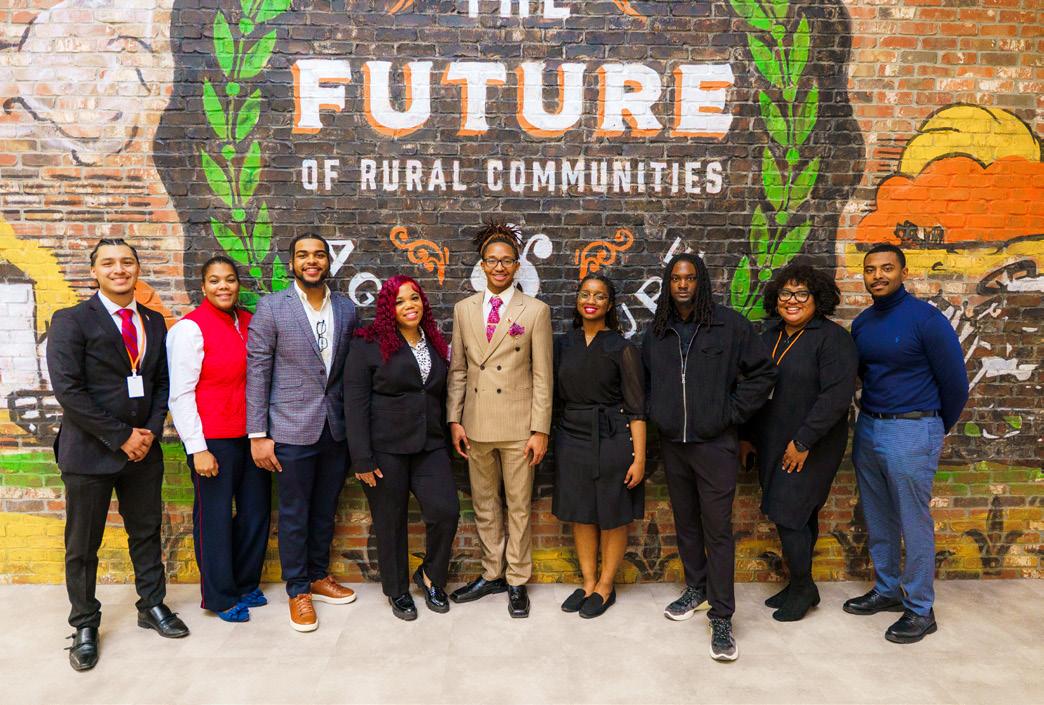
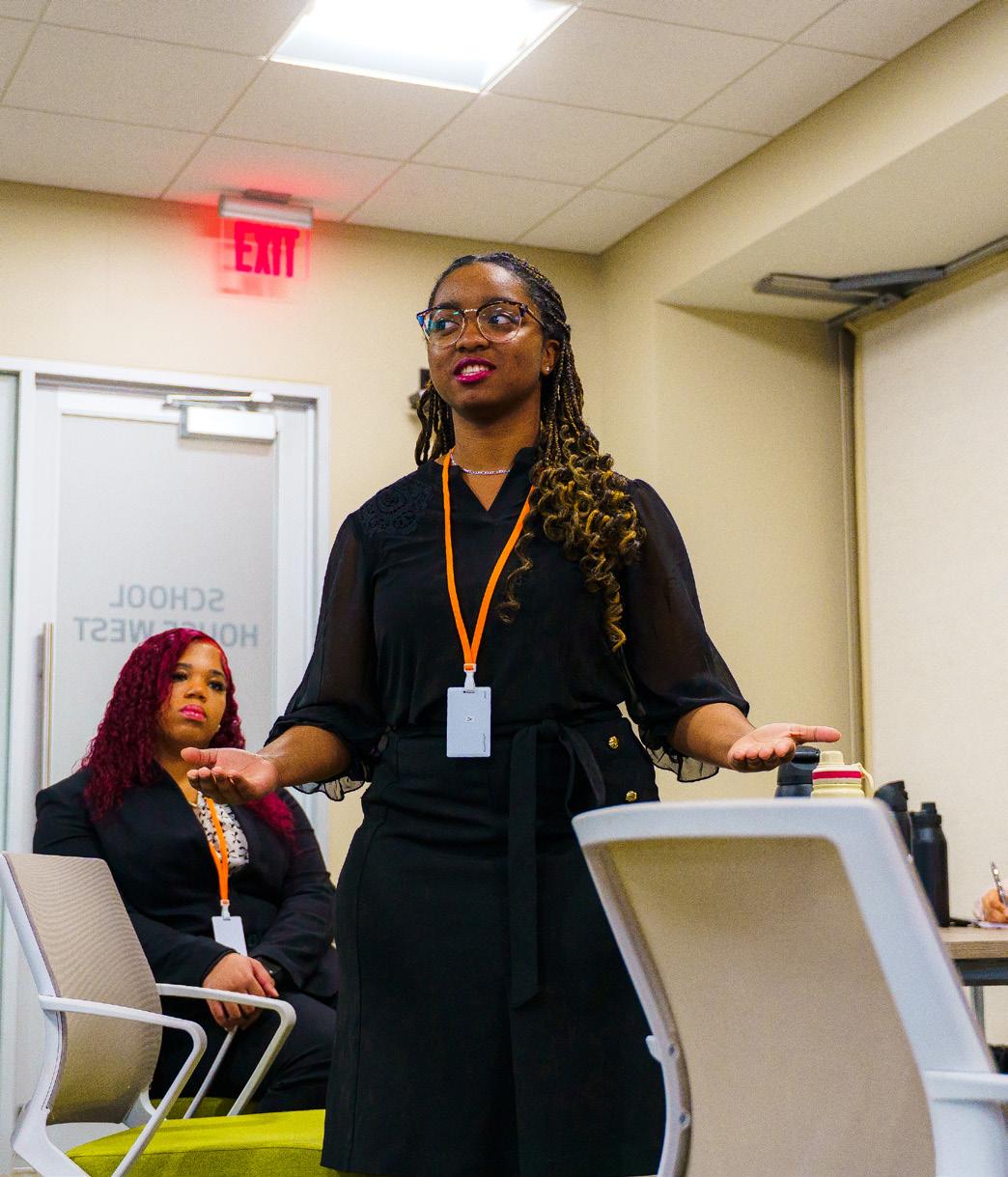

TSUAg navigates challenging funding environment to spark new research programs |
By Charlie Morrison
Dr. Behnaz Molaei | $727,944
PARTNERSHIP: Improving Crop Water Use Estimation with UAS-Based Models & Controlled Automated Temperature Reference Surfaces
U.S. Department of Agriculture – National Institute of Food and Agriculture
Funded by a USDA – NIFA AFRI grant, TSUAg Extension Professor Dr. Behnaz Molaei is currently exploring a powerful new application of drone-based imagery aimed at improving the accuracy of the Unmanned Aerial System-based energy balance model for estimating geospatial crop evapotranspiration. The four-year project, in the ubercompetitive “Engineering for Precision Crop and Water Management” category, will see Molaei use precision tools like state-of-the-art soil, plant and atmosphere sensors as well as remote sensing data for monitoring the status of crop water use in different climates. The end goal is bring the data to an artificially intelligent machine learning model for better irrigation scheduling.
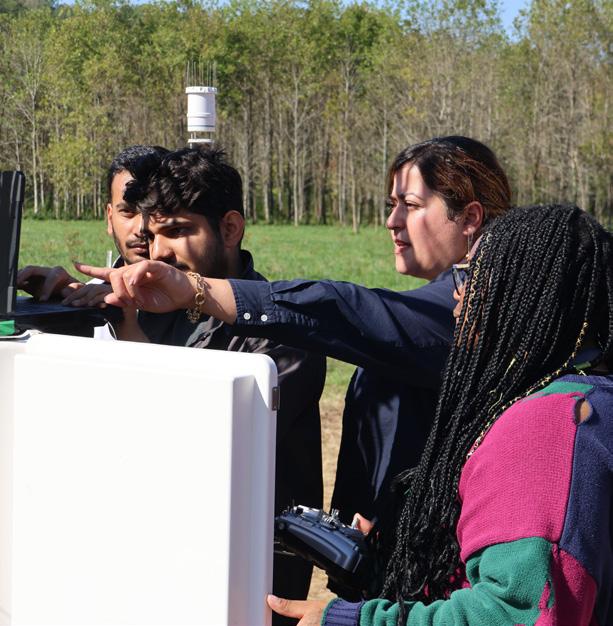

Dr. William Sutton | $256,350
Assessing the use of environmental DNA as an early detection method for aquatic invasive species | U.S. Department of Agriculture Forest Service, Southern Research Station
TSUAg environmental scientist Dr. Bill Sutton will be utilizing a combined U.S. Department of Agriculture Forest Service and Southern Research Station grant to perform research on detecting nonnative invasive species with their environmental DNA (eDNA), which is found in the old skin cells, waste, and other materials that all creatures shed. The team will test whether eDNA methods developed by the Pacific Northwest Research Station are suitable for the South. The researchers will sample sites on the Francis Marion National Forest in South Carolina and use the data to develop occupancy models, assess differences between sampling methods, and develop a protocol for monitoring invasive species in aquatic habitats. The protocol will then be implemented on three additional national forests in the South.
Dr. Abdelaziz Lawani | $1,299,997
Empowering Workers in Clean Energy: A Solar Workforce Development Initiative U.S. Department of Energy
As part of the U.S. Department of Energy’s continued dedication at producing a workforce capable of working alternative energy solutions, Dr. Abdelaziz Lawani recently embarked on a journey to empower workers in clean energy with a grant over just under $1.3 million. The multi-phase, multifaceted project will begin this summer with a workforce bootcamp on solar energy. The DARE³ Solar Workforce Bootcamp should be an exciting training opportunity for individuals interested in launching careers in clean energy. This program is part of the Digital Advanced Renewable Energy – Education & Employment (DARE³) initiative and is designed to empower students, youth, veterans, women, and individuals exploring new career paths in the solar energy field.
Dr. Korsi Dumenyo | $836,100
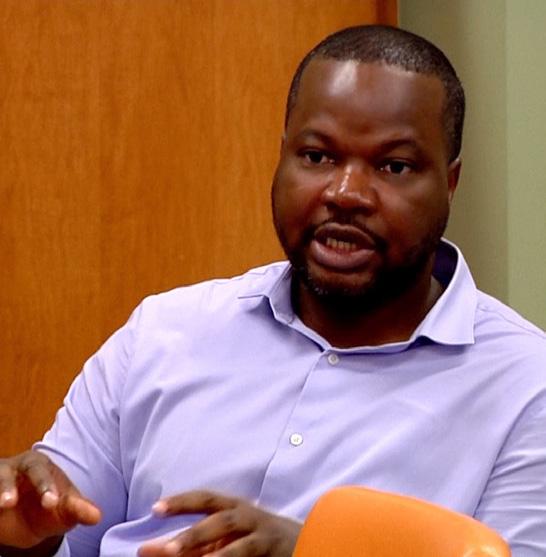
Excellence in Research: Mechanism of plant-bacterial interactions in bacterial wilt pathosystem National Science Foundation
Bacterial wilt disease of cucurbits inflicts substantial damage on cucumber and melon crops throughout the eastern United States and across the world, threatening the cultivation of cucumbers, squash, pumpkins, and melons, resulting in considerable economic losses due to reduced yields and the increased costs associated with managing the disease. In an effort to explore the genetic interplay between the host plants and the pathogen and screen, identify and characterize the natural resistance traits of cucumbers, Dr. Korsi Dumenyo is pursuing a National Science Foundation-funded “Excellence in Research” project. The goal is to leverage these insights to develop sustainable and environmentally friendly management strategies for these critical agricultural resources.
Dr. Resham Thapa | $367,455
Acquisition of Li-7820-8250 Automated Soil Gas Flux System for Strengthening Sustainable Research and Education at Tennessee State University | U.S. Department of Agriculture – National Institute of Food and Agriculture
In an effort to develop sustainable agricultural practices and understand how they regulate soil biogeochemical processes, TSU’s Dr. Resham Thapa successfully acquired funds to purchase for the College an well-integrated and Automated Long-term Soil Gas Flux System from LI-COR Biosciences. The cutting-edge system allows for real-time measurement and monitoring of soil gas fluxes (namely, nitrous oxide, carbon dioxide, and methane) in diverse environments, including croplands, forests, wetlands, and urban landscapes. Currently, the lack of access to this equipment hampers several critical research projects in diverse areas of sustainable agriculture, urban forestry, ecology, and environmental fields .
Dr. Hongwei Si | $591,161

Excellence in Research of dietary blueberry delays aging and reverses aging-induced physical dysfunctions by regulating PPAR pathway (with Participant Support)
National Science Foundation
TSU research scientist Dr. Honwei Si is looking into the anti-ageng properties of blueberries with a pair of National Science Foundation grants totaling just under $600,000. The grant-funded project, which includes substantial support for volunteer participation, aims to understand how the dietary intake of blueberries, which have been shown to have positive effects on health, might work to do so, particularly with regards to people over 65 years of age. With novel experiments examining molecular pathways that impact muscle and blood vessels, two important ideas will be tested, whether the dietary intake of blueberries can extend a healthy lifespan and/or delay the normal aging process.
TSUAg reopens on a trio of newly renovated, cutting-edge laboratory facilities |
By Charlie Morrison
The Tennessee State University College of Agriculture (TSUAg) officially announced the re-opening of a trio of research laboratories on campus this spring with a ribbon-cutting ceremony held at the Farrell-Westbrook Agricultural Complex on TSU’s campus. TSU interim President Dwayne Tucker and Tennessee Commissioner of Agriculture Charlie Hatcher were on hand to kick off the revamped research facilities, and they joined TSUAg Dean Dr. Chandra Reddy and other dignitaries in cutting the ceremonial ribbon for the labs in late April.
The renovation and re-opening of the three laboratories, the Legume Molecular Genetics Laboratory, the Urban Forest Ecosystems Laboratory and the Forest Ecology Laboratory means the College of Agriculture is now operating a total of 37 research laboratories, a fact that was news to the ears of, for one, Tennessee Department of Agriculture Commissioner Charlie Hatcher.
“The agriculture and forestry industry is the number one industry in the State of Tennessee. They are the solution to many of the world’s problems,” said Tennessee Department of Agriculture Commissioner Charlie Hatcher. “And the very future of the agriculture and forestry industry depends
on facilities like this, it depends upon the lab directors and students who work in facilities like this.”
The ceremony commenced with tours of the three new laboratory facilities given by students and faculty members working in the labs. Faculty members Dr. Sarah Neumann (head of the new Forest Ecology Laboratory), Dr. Yujuan Chen (Urban Forest Ecosystems) and Dr. Sonali Roy (Legume Molecular Genetics) introduced their new spaces, before giving way to their respective student researchers.
Undergraduate and graduate students introduced research projects, described instrumentation and even conducted hands-on demonstrations, with Hatcher and President Tucker taking part.
“We now have more capacity to teach. The new laboratories expand our training outreach, we can bring more students into the process of doing real-world research,” said Dr. Roy. “But just being able to do independent research with specialized equipment is also a huge plus.”
With the tours concluded, the assemblage took to the front lawn of the FarrellWestbrook building for the ribbon-cutting


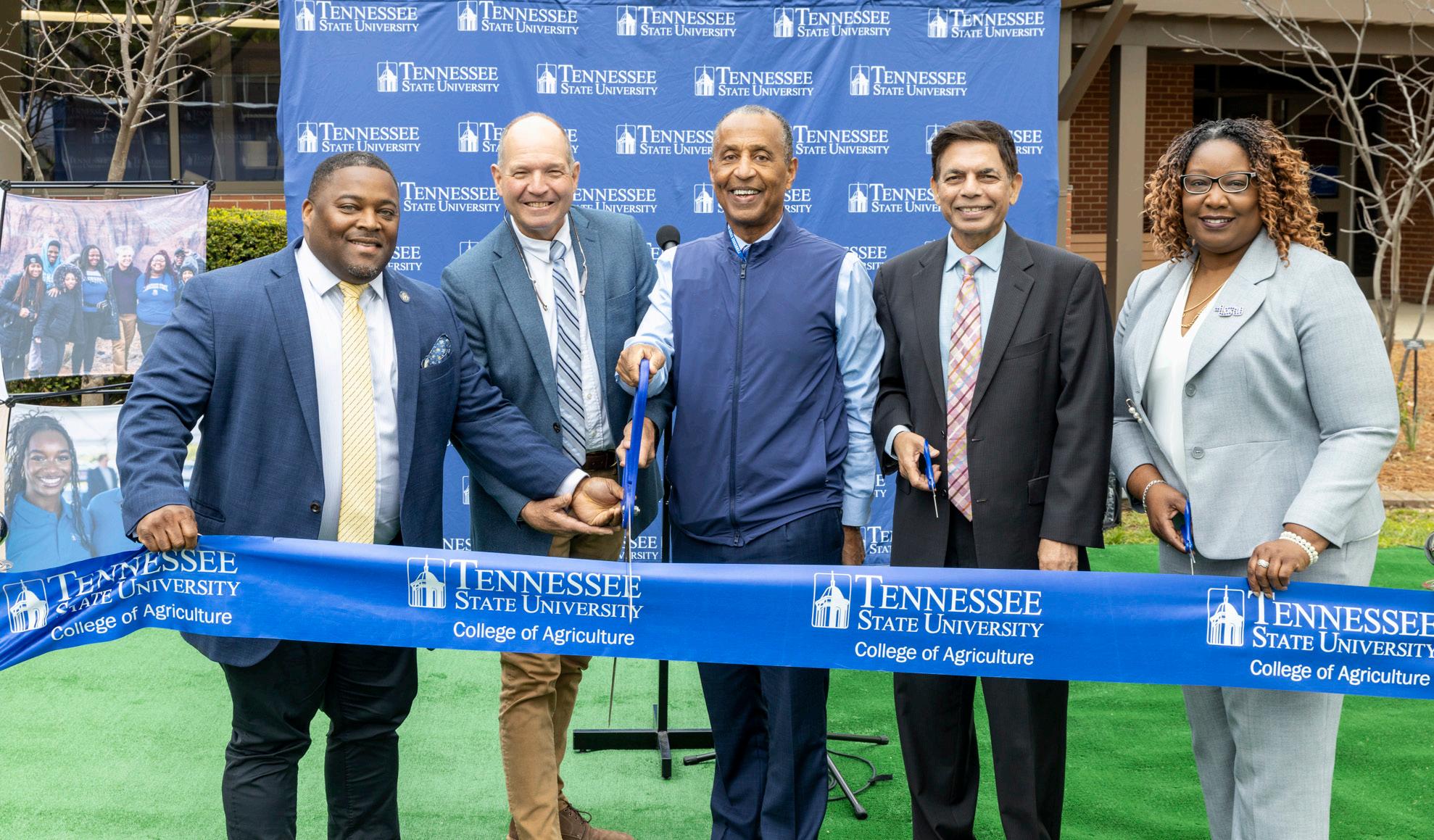
ceremony, where Dr. Reddy introduced the guest speakers and touched on the importance of agriculture research.
“Crops like corn are producing 10 times more yield than they did at the beginning of the 20th century and that did not happen magically, it happened because of a lot of research that happened in this country and the world in research labs like the ones you just toured,” said Dean Reddy, before introducing President Tucker.
“These new laboratories are more than just modern spaces, they are a symbol of our ambition, a testament to our resilience and a platform for the future,” echoed Tucker in his address to the gathering. “They will empower our faculty, inspire our students and help us tackle the most urgent issues in agriculture, sustainability and community well-being.”
The research set to take place in the newly renovated facilities is varied. Dr. Neumann’s Forest Ecology Lab
will be focusing on the decline of oakdominated forests and the plant-soil feedbacks that contribute to changes in forest composition.
Dr. Chen’s work in the new Urban Forest Ecosystems Lab will focus on exploring the impacts of humans’ decisions and activities on urban forest systems.
Dr. Roy’s Legume Molecular Genetics lab will be taking on the issue of excessive nitrogen fertilizer use and seek solutions aimed at retaining the benefits of the use of nitrogen.
For the students who will be conducting that research and seeing greater opportunities to spend time in the laboratory with these new facilities now open, it was a big day.
“It’s really helpful to have that space,” said Sydney Wyche, a junior Agricultural Science major working in Dr. Chen’s new Urban Forest Ecosystems Lab. “And it was really cool
to see everybody come out and see our new facility and see how we’re utilizing that space.”
“I’m really proud of us, to see everyone here, to celebrate, to have a big event is a big deal,” said fellow junior Agriculture Science major Todd Stansberry. “This is hopefully a step forward.”
“
These new laboratories are more than just modern spaces, they are a symbol of our ambition, a testament to our resilience and a platform for the future.”
- TSU President Dwayne Tucker
110,000
Years since the Morrill Act of 1890 established land-grant HBCUs
62
This spring we graduated over 60 undergraduate and graduate students

Square feet of new research and teaching space under construction.
(Food and Animal Sciences & Environmental Sciences Buildings)
“
The very future of the agriculture and forestry industry depends on facilities like this; it depends upon the lab directors and students who work in facilities like this.”

TSU Extension is in 63 counties in tennessee 135
The total value of scholarships TSU students were awarded for use during the 2024-2025 academic year
Contributes to Tennessee’s $85B ag economy through workforce development and innovation
Helps sustain rural communities through agribusiness support, education, and outreach
Supports equity in agriculture by elevating the voices and opportunities of underrepresented groups
- Charlie Hatcher, Tennessee’s 38th Commissioner of Agriculture on the new TSUAg laboratories
TSU’s Cooperative Extension program now operates in
63 of 95 Tennessee Counties

Reaches over 50,000 citizens annually with programs in agriculture, youth development, and health
TSUAg honors undergraduate scholars, scholarship awardees at first-annual Scholars Luncheon |
By Charlie Morrison
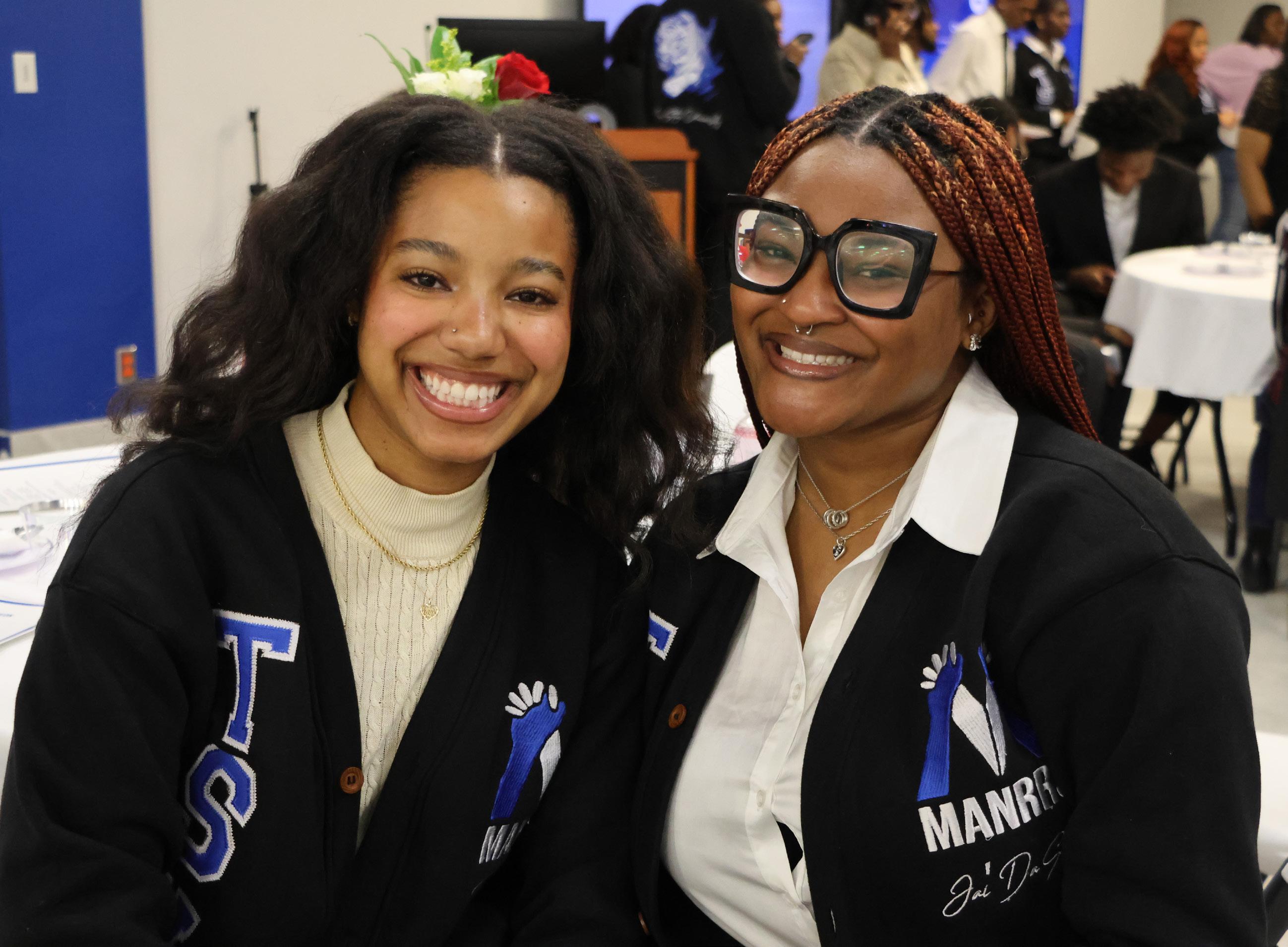
The Tennessee State University College of Agriculture (TSUAg) took a collective step back from the day-to-day grind of late semester life this spring to spend an afternoon honoring student achievement at the 2025 Scholars Luncheon, held on April 18 at the Farrell-Westbrook auditorium on campus. The event was created to celebrate scholarship at the College this year, and as such, it brought hundreds of our best and brightest out for an afternoon of self-reflection and thanks.
Associate Dean for Academics and Land-Grant Programs Dr. De’Etra Young served as the MC for the event and it was she who welcomed the nearly 200 students and scholarship awardees to the auditorium, which was decked out for the event with white tablecloths and centerpieces with flowers.
“You all have done everything from the Bayer takeover event, Corteva’s been on campus, Outside magazine, we worked with Ardent Mills and USGS,” said Dr. Young. “You’ve had study abroad in Austrailia, and India, and Panama... it’s been an incredible semester and you all have done all this while maintaining a 3.2. You’re actively involved, you’ve taken leadership roles and we have the best MANRRS chapter in the country.”
“We want today to be a day of celebration.”
And a celebration it was, as in total, students received more than $1.4 million in scholarships during the 2024-2015 academic year. At the luncheon representatives from a total of 20 different scholarship categories were recognized.
Following an invocation delivered by undergraduate student Emily Shelby and some comments on the occasion from TSUAg Dean Dr. Chandra Reddy, Young turned over the floor to a pair of special guests.
Tennessee Commissioner of Agriculture
Charlie Hatcher was on hand for the event, and to the delight of the students he addressed the room as only he can.
“It gives me great hope to see this many students who are highly motivated to help us with agriculture and forestry in this state and in the country because we desperately need it, we desperately need you students,” said the Commissioner. “Congratulations on your recognition today and keep up the good work. You are highly valued and appreciated for what you do.”
TSU Interim President Dwayne Tucker was also on hand for the luncheon, and he too offered up his remarks to the focused faces of the nearly 200 scholars in attendance.
“The engine for the University is the College of Agriculture,” said the President. “You have a great team here, so keep up the good work.”
Following lunch, it was the students who took over, offering their reflections on their year and in some cases their time here at the College of Agriculture. Scholarship recipients and student leaders Omari Mason, Blake Wright, Katrina Seaman, Janae Terrell, Emery Minor and Gianna Pearson took their turns at the podium, introducing their respective scholarships and having recipients stand to be recognized.
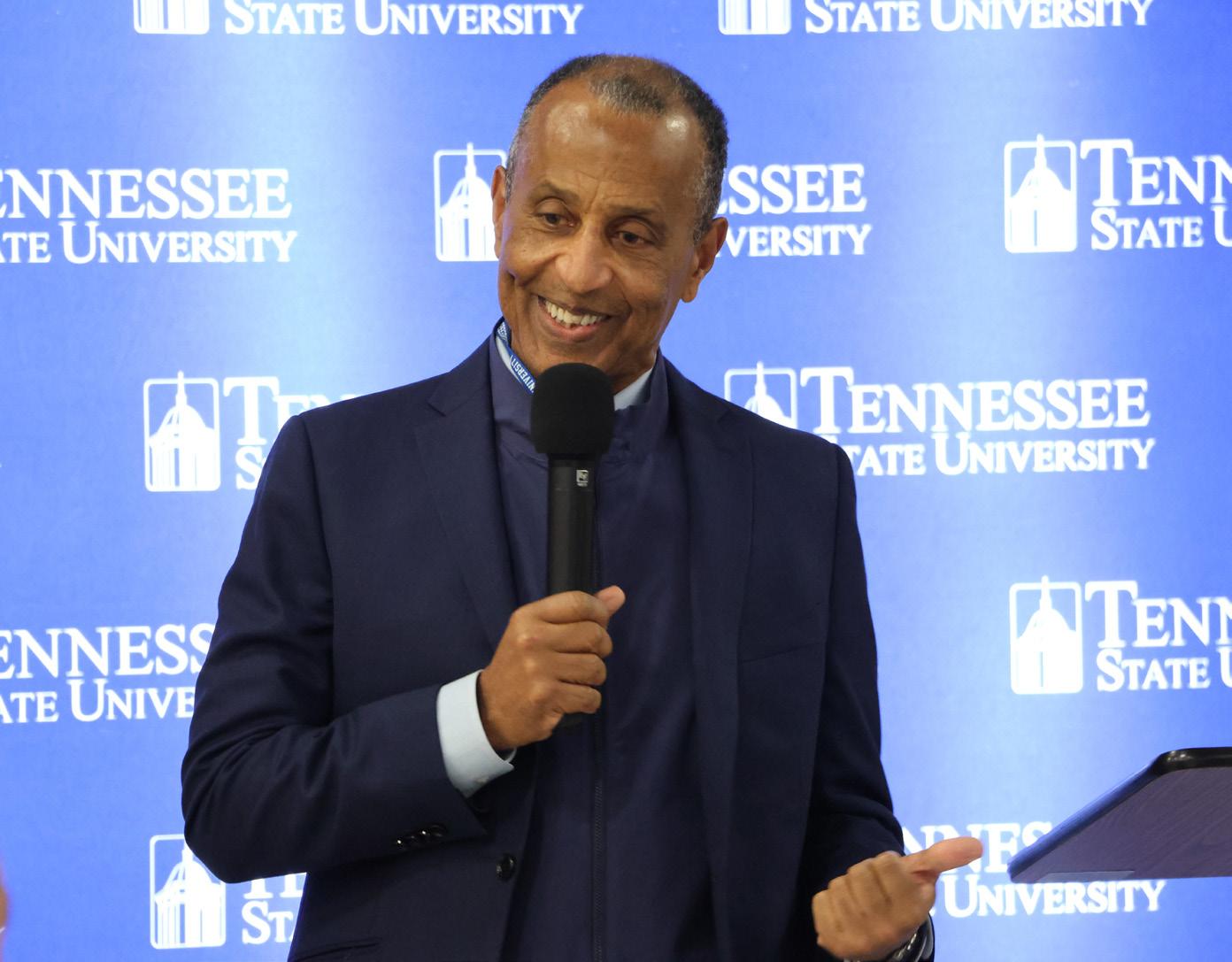
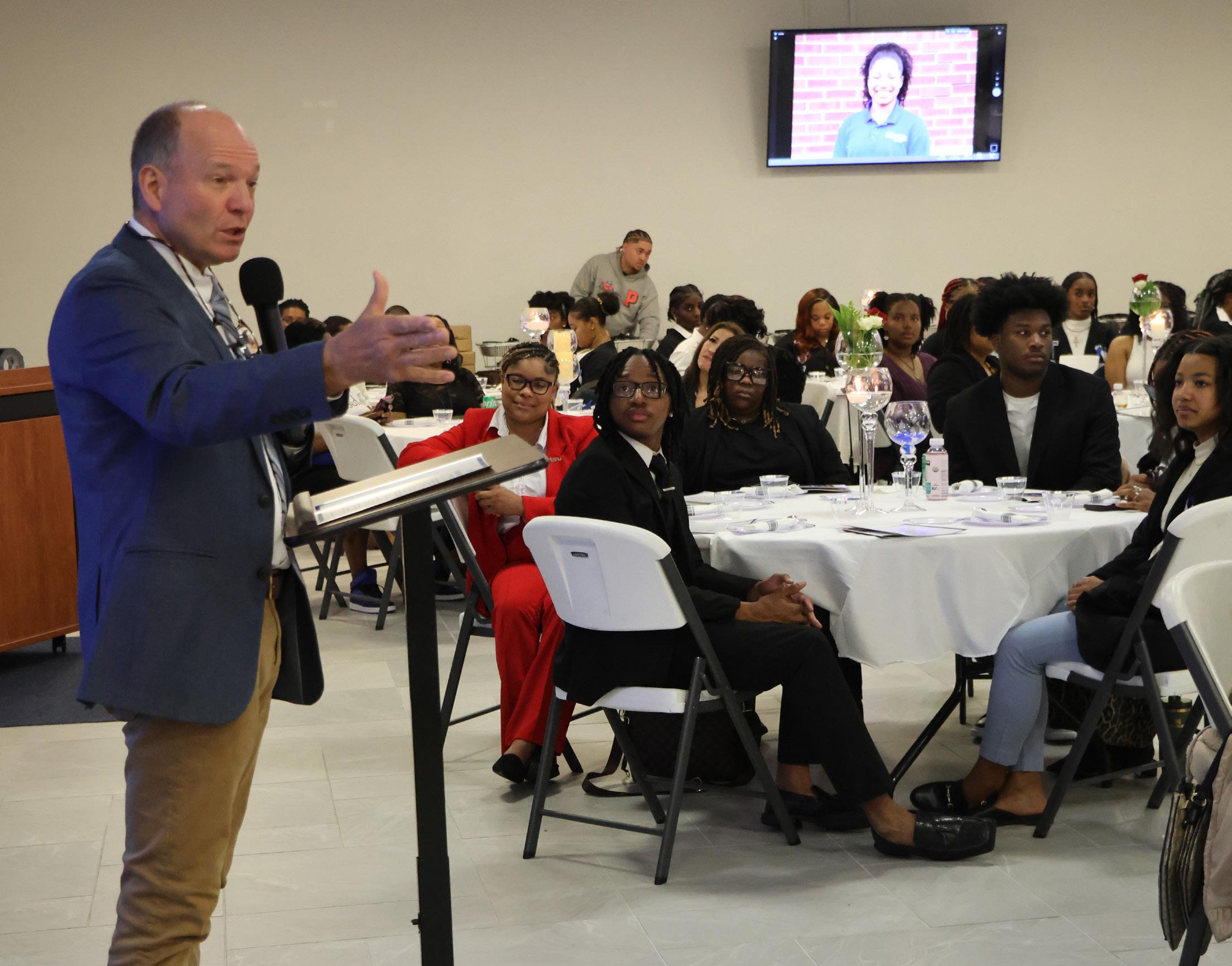
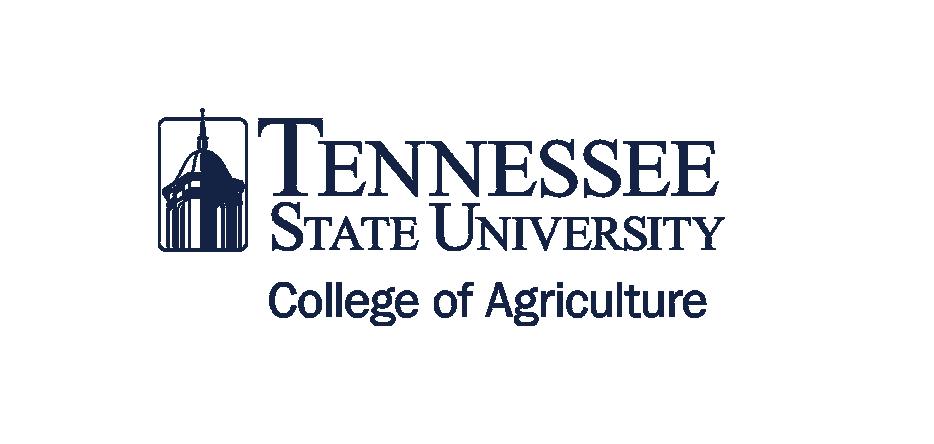
TSU COLLEGE OF AGRICULTURE OFFERS ACCESS TO OUR SUITE OF FACILITIES

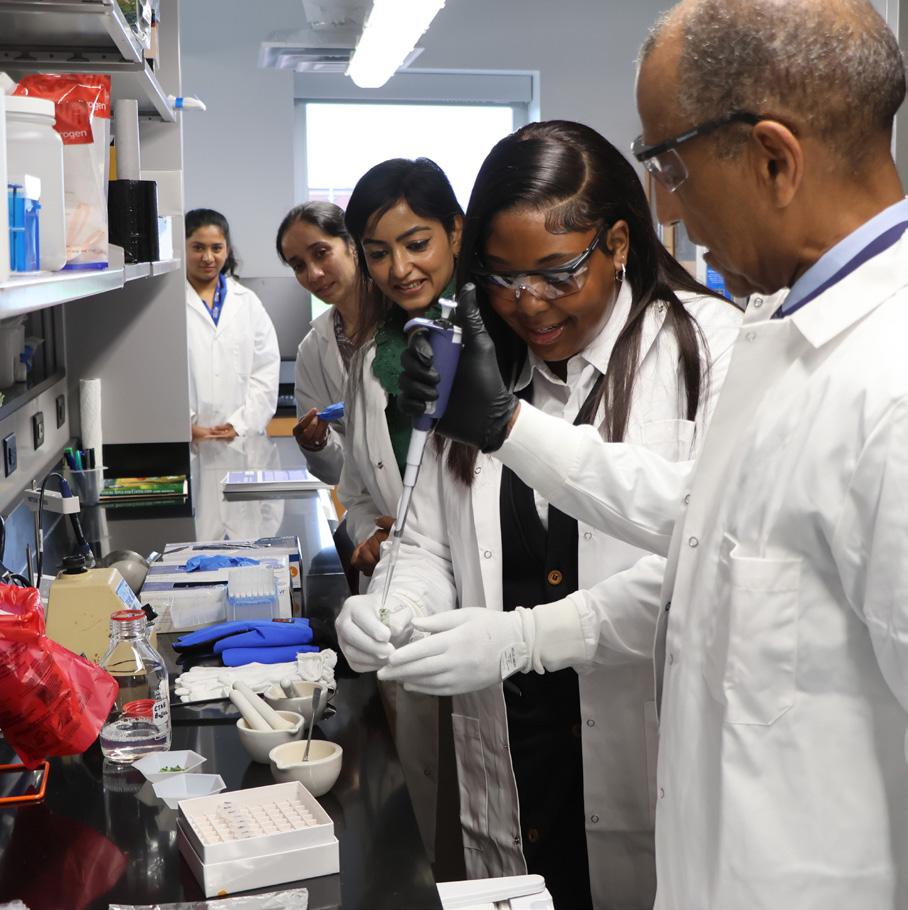
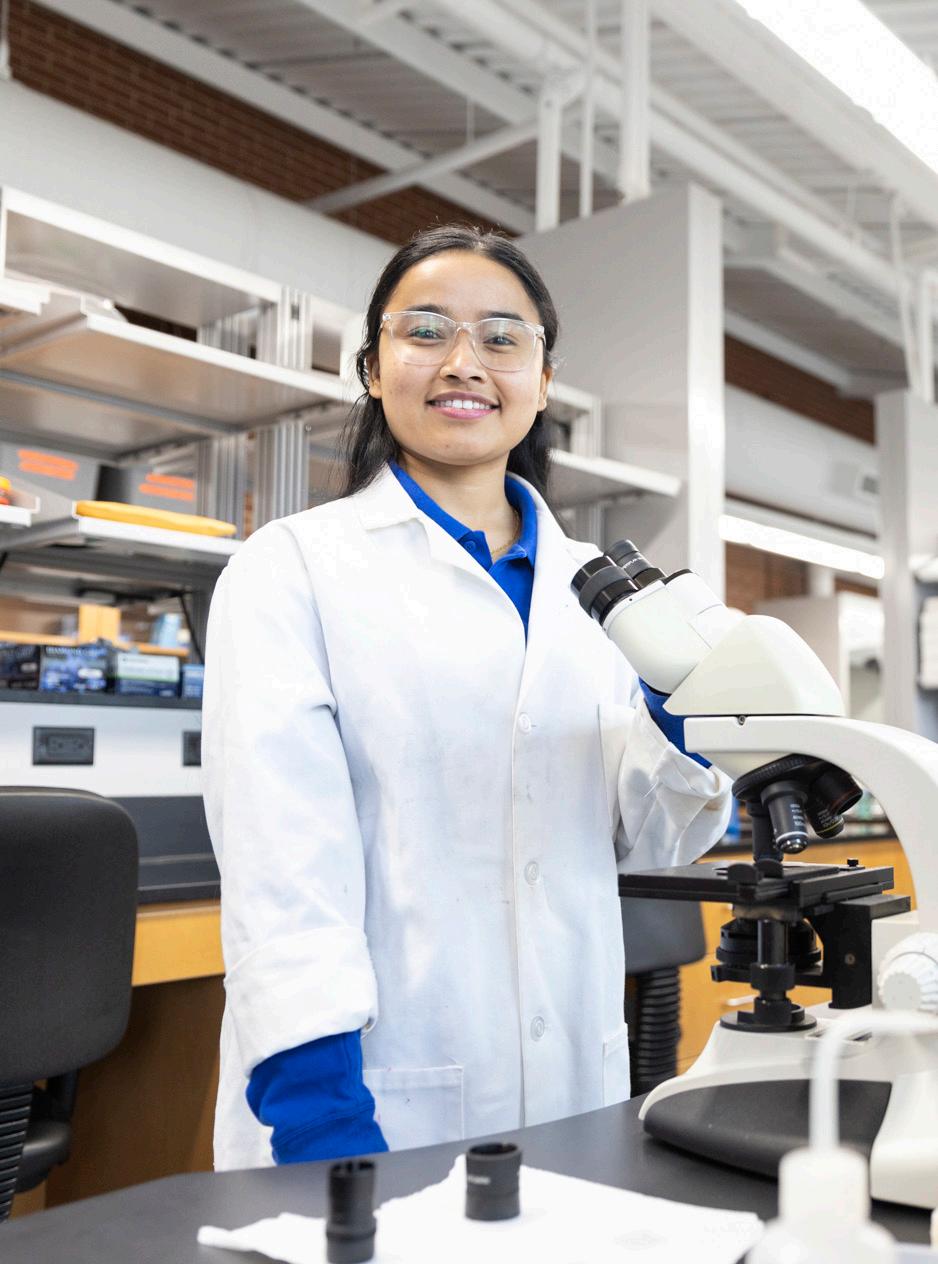

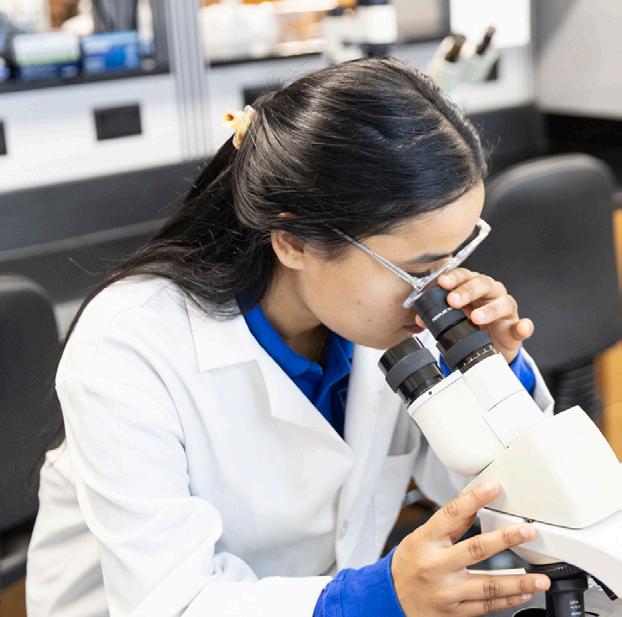


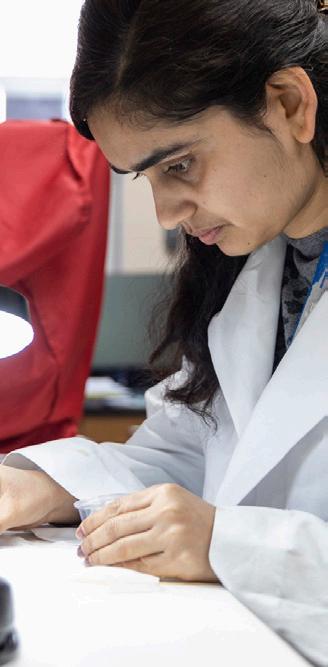



Researched and Edited by Elease Jolley and Thelma Sanders-Hunter
The modern-day history College of Agriculture stands on the shoulders of generations of agricultural education students | By
Charlie Morrison
It is a story that spans five generations. 110 years of history. Tens of thousands of lessons learned and lives bettered. The story of agriculture education that’s been weaved at the Tennessee State University College of Agriculture (TSUAg) reads like an epic.
Part two of that story, the story of modern-day TSU begins with a seminal moment in Tennessee land-grant history.
The modern TSUAg arguably began in the fall of 2001, when the College and the University of Tennessee signed a memorandum of understanding outlining a merger of the two land-grant universities’ Cooperative Extension programs and a shared responsibility in areas where joint programs exist. This includes the creation of a unified planning and reporting system. Additionally, in counties where agents from both institutions are co-located, a county leadership role was established.
The merging of the two programs was a seminal moment, fundamentally altering how Tennessee’s two land-grant
universities continue to interact ever since. The relationship transcends Extension; TSUAg and the University of Tennessee also collaborate on research now as well.
Today, TSUAg’s Cooperative Extension program continues to grow, having recently expanded to three more Tennessee counties, bringing out state-wide total of county Extension offices to 63 of the state’s 95 counties.
In 2003, TSUAg kicked off an event which would become synonymous with the College, the Tennessee Small Farm Expo. The Expo refocused the College on the Tennessee small farmer, serving as a venue for agriculture agencies, businesses and industry professionals to come together and network, share information and celebrate small-scale farming in the Volunteer State.
The purpose of the Small Farm Expo was and is today (the 21st iteration of the event will take place this fall) to organize an annual effort to promote the awareness of Tennessee agriculture and agricultural products and
to provide useful, practical, research-based information designed to improve marketing and economic conditions for the producers.
In addition to serving agricultural producers in Tennessee with information, knowledge, community and networking, the Expo also served to recognize some of the state’s most innovative farmers and small producers. Beginning with the first iteration in 2003, the Expo has served to recognize key farmers doing great work executing innovative marketing practices, best management practices and alternative enterprises. Recognition is given to the top small farmers within the State of Tennessee each year who are grossing less than $50,000 annually.
Five years later, the College experienced a massive transition to its fifth Dean, Dr. Chandra Reddy. After coming on board, Reddy oversaw the unification of the College’s three land-grant programs: teaching, research, and extension, mandating that faculty within the three areas devote percentages of time to teaching and research; research and extension; or extension and teaching.
Faculty members within research and extension began interacting with each other and the culture of the College evolved. And while implementing that transition was Reddy’s first challenge as the Dean of the College, he would, soon after face another test when disaster struck TSU in the form of rising flood waters.
The Flood of 2010 had a devastating impact on TSU’s research farms, both on the main campus of TSU with
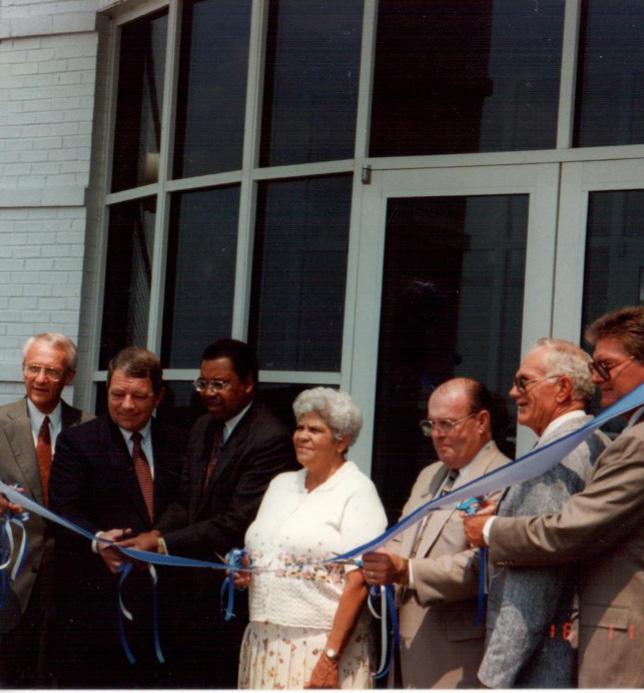
the Agricultural Research and Education Center facility and TSUAg’s Cheatham County research facility. The extensive damage to the farm facility on the TSU campus took years to remediate. Monetary damages to buildings and equipment ran well into the hundreds of thousands of dollars and the research programs of students and over a dozen faculty members suffered major setbacks.
A decade later, the College was forced to navigate another tragedy, this time a tornado that struck the AREC once again, ripping buildings from their foundations and devastating the College’s greenhouse spaces. It took four years to bring those facilities back online but in the fall of 2024 the College did just that, having successfully navigated the insurance process and construction.
In 2023, the College was restructured into five distinct departments operating with functioning department heads under one administration. The crux of the restructuring is the dissolution of the bloated Agriculture and Environmental Sciences Department, a unit that has served as a catch-all department for all things related to Agriculture at the College for decades.
What was two departments, Agricultural Science and Human Sciences, became five departments, the Department of Agricultural Science and Engineering, the Department of Food and Animal Sciences, the Department of Agriculture Business and Education, the Department of Human Sciences and the Department of Environmental Science.
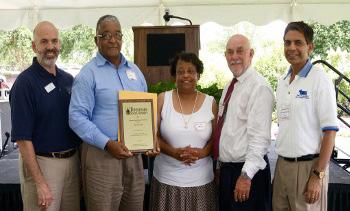
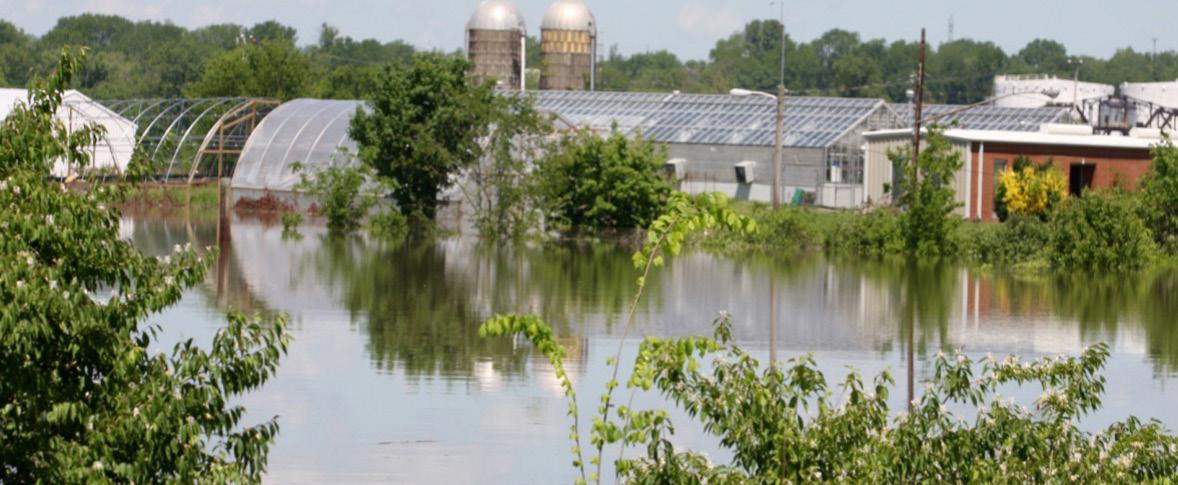
“
We
-
Dr. Ankit Patras, TSUAg Associate Professor
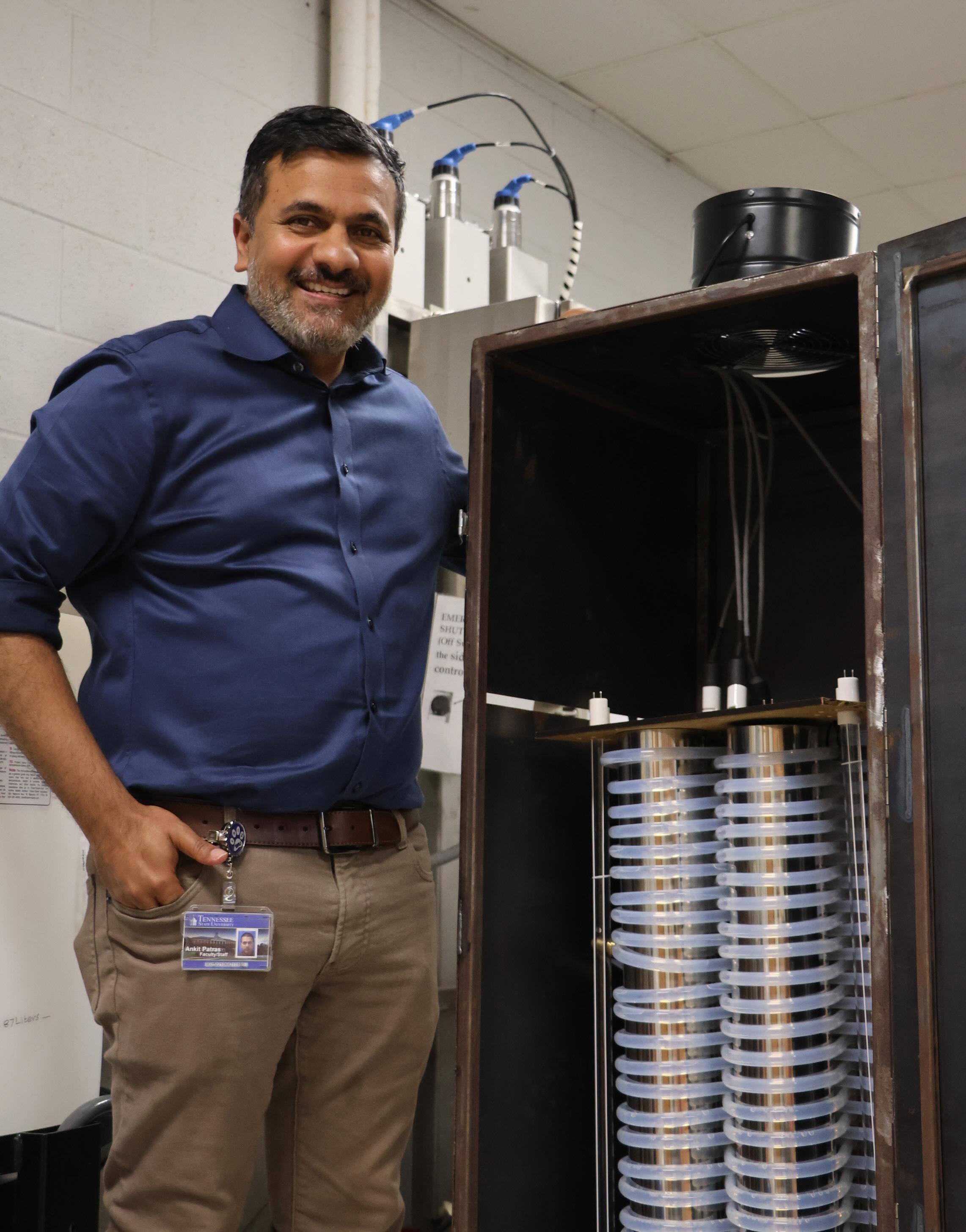
were so proud of what we created, a system that can innoculate E. coli. from liquids with a single passage with precision UV dosing, all from a drawing on a napkin.”
TSUAg campus home to an ‘ah-ha’ moment in food science that leads to first University-partnered patent | By Charlie
Morrison
Scientific progress often moves in leaps and bounds—and in food processing, those leaps are rare, separated by centuries. One of the most impactful came over 150 years ago when French scientist Louis Pasteur discovered that heat could kill harmful microorganisms in beer and milk. That innovation—now known as pasteurization—became a cornerstone of modern food safety, and despite being relatively inefficient and energyintensive, it remains widely used to this day. It’s high time for a revolution in food processing, and Tennessee State University College of Agriculture (TSUAg) Associate Professor of Food and Biosystems Engineering Dr. Ankit Patras is serving as our in-house revolutionary.
Pasteur’s innovation revolutionized the food industry by extending shelf life and reducing foodborne illness risks, though it remained an imperfect solution. There had to be a better way, but until recently science couldn’t find it. That was until roughly two decades ago, when the world of science began to examine another way to kill pathogens, with non-thermal, highly efficient ultraviolet (UV) technology. In the early 2000s, the USDA began funding non-thermal processing research, and the FDA approved UV treatments for acidic juices. Around this time, Ankit Patras earned his Ph.D., focusing on non-thermal processing techniques which included optical and computational methods. The timing was ideal, as shortly after graduating, he joined Trojan Technologies, a global leader in UV disinfection.
The years with Trojan were seminal for Patras, who worked on the disinfection of fluids for all kinds of uses, food products, pharmaceuticals and more. In the end however, the private sector served only as a springboard back to academia here at TSUAg, and he decided to leave the private sector for a faculty position at TSU in 2014. It was here on campus that Patras’ research really took off. “I needed more freedom to do my own research, to train students and to build a program that wasn’t controlled by business
decisions,” he continues. “I wanted to build something big.” Before he’d even been assigned a laboratory space here at the College, Patras was able to use data he’d brought with him from Trojan on his first grant application, an application he was almost immediately awarded. Trojan Technologies was a part of the research grant.
“(The USDA) saw that this collaboration existed already and that we could move fast because we already had momentum,” says Patras. “That momentum came in the form of yes, data, but also some equipment that they loaned us. You don’t want to lose momentum in science, you want to keep going and I did.” Within six months and with funds from TSU, his grant of $500,000 and his loaned equipment from Trojan, Patras set up the Food and Biosciences Laboratory, hired on a half-dozens student researchers and he was off. His goal: the creation of a UV disinfection unit that could remove all traces of respiratory viruses from air and surfaces. It was ambitious, but Dr. Patras and his team knew they were on to something.
In 2023, Dr. Ankit Patras and Pankaj Uttarwar (Chief Executive Officer) founded FLOUV Technologies to pursue their vision. That year, they sketched the design for their first UV system on a napkin, launching the pursuit of a prototype. By year’s end, they had built a desk-sized prototype, constructed from laser-cut medium-density fiberboard and fitted with tubing they shaped by hand.
The ah-ha moment came, during the 2023 Thanksgiving break when the device inactivated 99.999% of the E. coli and salmonella they tested for. Dr. Ankit Patras emphasized the significance of their achievement: “Global awareness is critical for making history. History is shaped in these pivotal moments, and that’s what we aimed to do—make history. We were incredibly proud of our creation: a device that eliminates all active E. coli from a liquid with a single pass with the correct dose, born from a sketch on a napkin.”
A second prototype followed, and at that point Patras decided to cease seeking public funding for continued work. To make something bigger and better, he surmised he needed private industry. Instead, he ran the early disclosure of the invention to TSU. When things progress, TSU will pack the patent application, making this invention the first TSU-sponsored patent application in the University’s history.
Patras and FLOUV have bootstrapped the entire project: the company has zero debt; they have a utility patent on their product. With an additional, final prototype in the works, the process of taking FLOUV to the international market is right around the corner.
“We’re thrilled about this milestone, but we’re cautious not to get ahead of ourselves,” Patras continued, “We haven’t sold any units yet, so with a smile. We’ll keep our focus.”
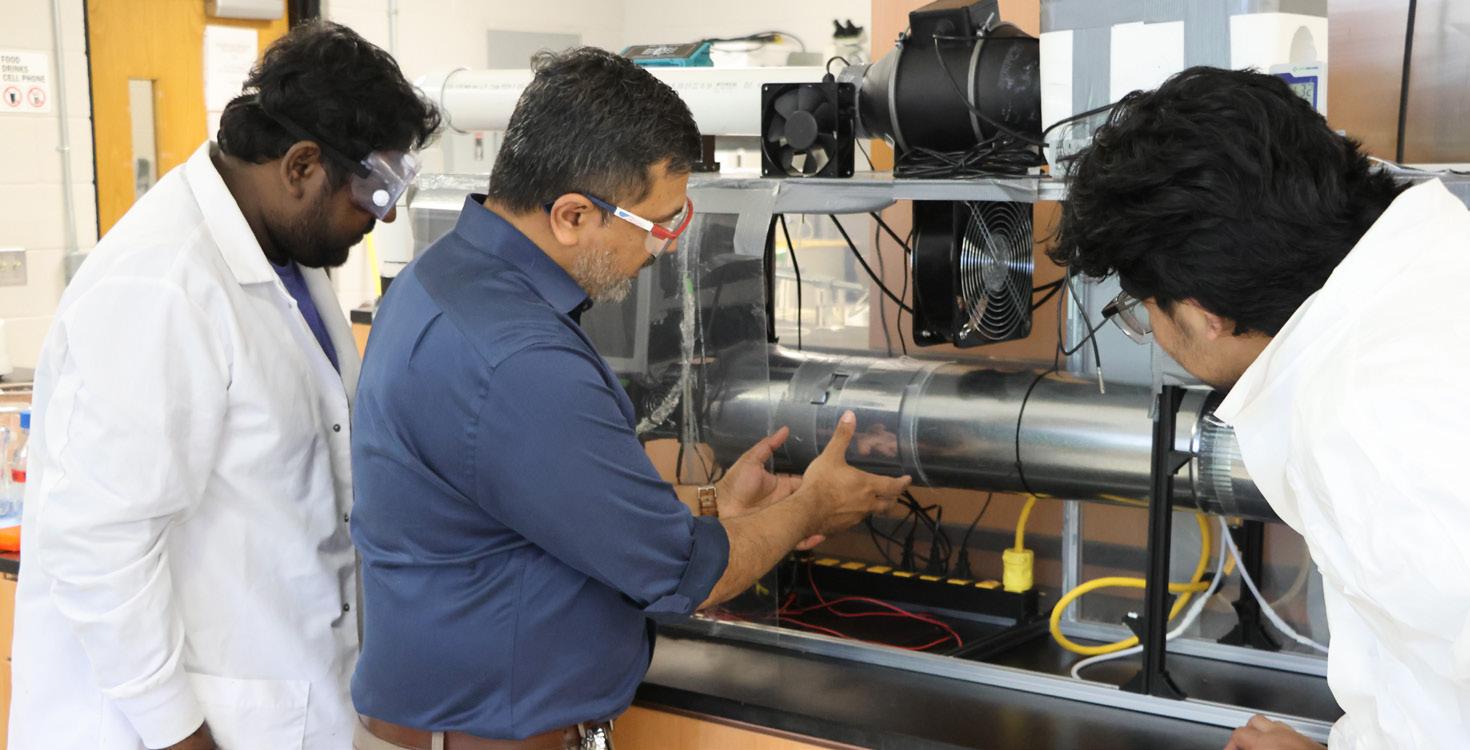
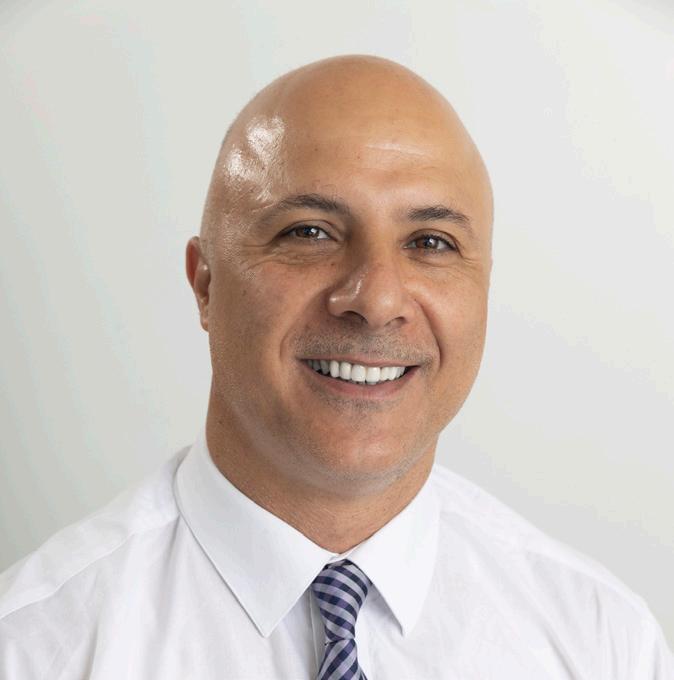
Dr. Hüseyin Barış Tecimen
Assistant Professor in Extension Forestry Department of Environmental Science
New Tennessee State University forestry scientist, assistant professor and Extension specialist Barış Tecimen is used to the study of agriculture in urban environments. Having completed his undergraduate, master’s and doctoral degrees at Istanbul University in the capitol city of his native Türkiye, urban agriculture is nothing new to him.
Barış’ work here at TSUAg, however, will be focused in his primary research area of forestry. He’ll focus on agroforestry application opportunities to the small medium-sized forest lands, while securing increased ecosystem services such as higher carbon sequestration, high-quality soil, forest and ecosystem resources/services.
“The thing I like about the College of Agriculture the most is the atmosphere,” he says. “TSUAg comes with a very friendly environment where people are nice, generous and willing to help new faculty members like me. I feel the love and I’m thankful.” helping to new people like me. I am thankful for that!”

Dr. ZaDarreyal “DJ” Wiggins
Assistant Professor in Plant Biology Department of Agricultural Science and Engineering
Dr. ZaDarreyal “DJ” Wiggins joins TSUAg as an assistant professor after first coming to campus as a doctoral student and staying on as an adjunct professor. The affable plant biologist earned his undergraduate degree from Alabama A&M University in agribusiness management, before heading south to Florida A&M, where he attained his master’s in plant science. His doctoral degree from TSU in in biology.
From 2022 to the fall of 2024, when DJ became a full-time TSUAg assistant professor, he not only served as an adjunct professor here at the College, but he also spent time as a postdoctoral researcher at Vanderbilt, working primarily in molecular biology. Here at the College, DJ is both researching and teaching; his work in organics over the past two semesters has already made a mark. His other research focus areas are typically biostimulants, flavonoids and vegetable/fruit production.
“One of the most rewarding parts of working in the College of Agriculture is watching students light up when the classroom concepts finally click during hands-on experiences,” says Wiggins. “That moment of connection—that’s what it’s all about.”
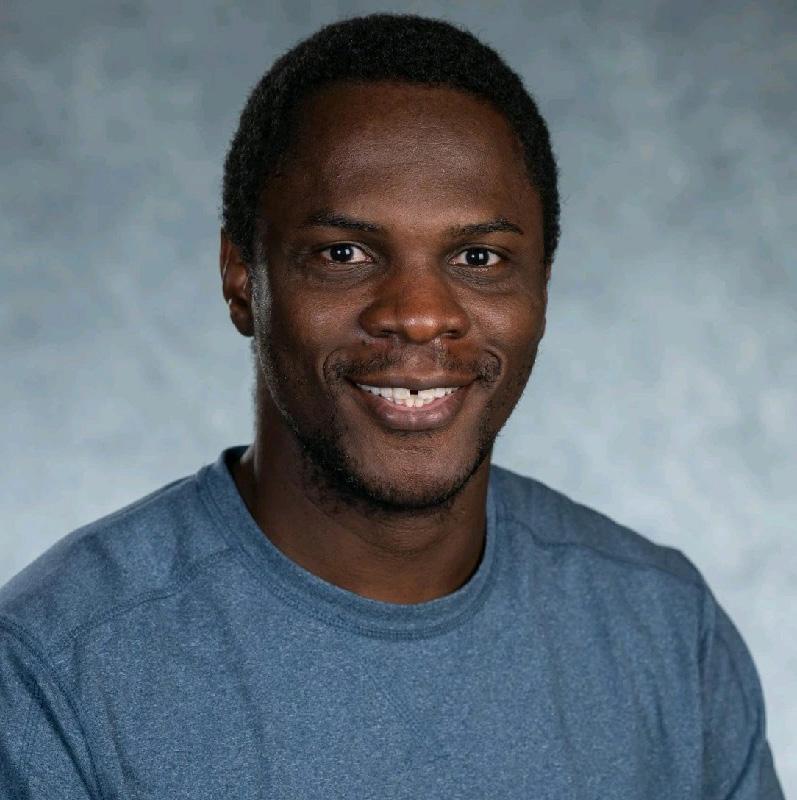
Assistant Professor in Soil Physics Department of Agricultural Science and Engineering
Dr. Felix Ogunmokun is dedicated to enhancing agricultural sustainability and environmental quality in Tennessee.
As a newly hired assistant professor in soil physics at the College, Ogunmokun’s research program is at the forefront of investigating the fate and transport of emerging contaminants in agricultural systems and critically assessing the effectiveness of conservation practices in safeguarding soil and water resources.
Felix leverages advanced modeling approaches to rigorously validate experimental outcomes, ensuring robust and impactful results. Ogunmokun holds both a master’s degree and a PhD in Soil and Water Sciences from the Hebrew University of Jerusalem.
“I am incredibly excited to be part of the TSU community and contribute to the university’s ambitions,” says Ogunmokun. “I am particularly looking forward to engaging with growers across the state to help address their pressing challenges and work together on improving agricultural and environmental resilience crucial for the state’s food security.”
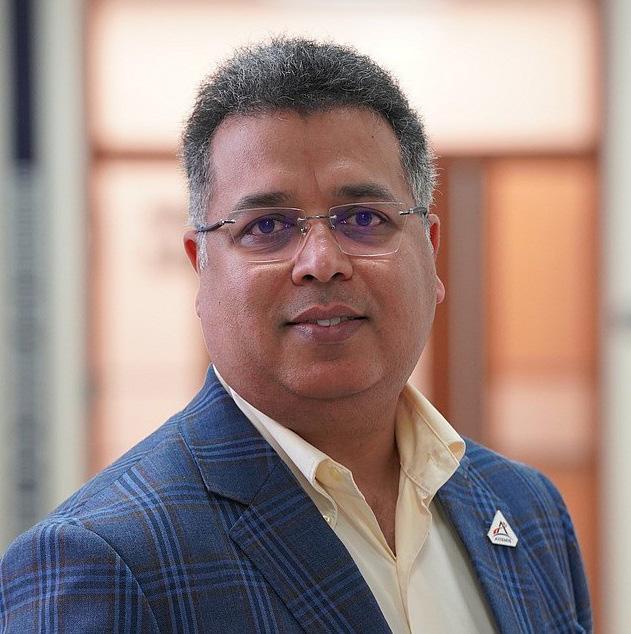
Dr. Sougata Bardhan
Associate Professor in Soil Health
Department
of Environmental Science
Dr. Sougata Bardhan joined the College of Agriculture in the spring of 2025. The soil scientist brings a wealth of experience in research, teaching and grantsmanship. His knowledge base is in regenerative agriculture, soil health, biofuel production systems, agronomy, soil fertility, carbon sequestration, greenhouse gas, and soil microbiological research with expertise in experimental design, research and analytical skills.
Sougata acquired both his master’s degree and his Ph.D. from the Ohio State University, after which he pursued postdoctoral work and a research professorship at both the University of Missouri and Lincoln University. In his career, Bardhan has been a leader in STEM workforce development training, working with organizations such as NASA, USDA, and other private entities to build the future workforce.
“We cannot build a sustainable future on broken ground. Regenerating soil is regenerating hope,” he says. “Joining this already distinguished soil and plant science team here at Tennessee State will allow me grow while impacting students on a daily basis. I’m thrilled to be here.”
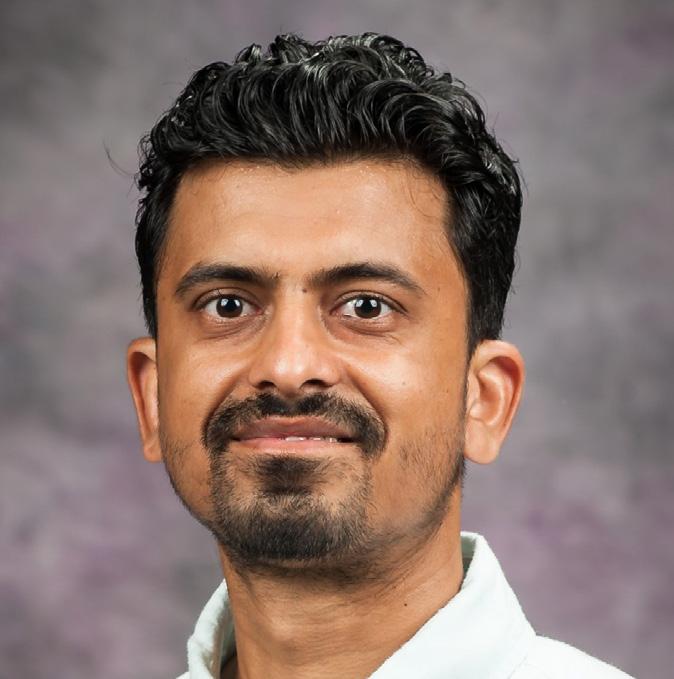
Dr. Chetan Sharma Research Assistant Professor in Sensory Science Department of Food and Animal Science
Dr. Chetan Sharma is a seasoned sensory scientist with a primary focus on sensory science and consumer behavior research. His work is pivotal in understanding evolving tastes and adapting to changing consumer needs, benefiting both food processors and producers.
Dr. Sharma’s research spans methodological investigations, human perception of food and personal care products, and consumer behavior analysis. His lab welcomes students from diverse backgrounds including language studies, sociology, psychology, statistics, data science, food science, biochemistry, and biology.
Dr. Sharma’s research directly influences food taste enhancement and as such, he’s currently setting up a sensory and consumer research lab to explore how people perceive food. His research will focus on everything from aroma, flavor, and texture to emotions and cultural context. “I am excited to share my enthusiasm for sensory science with the student body here at Tennessee State,” said Sharma.
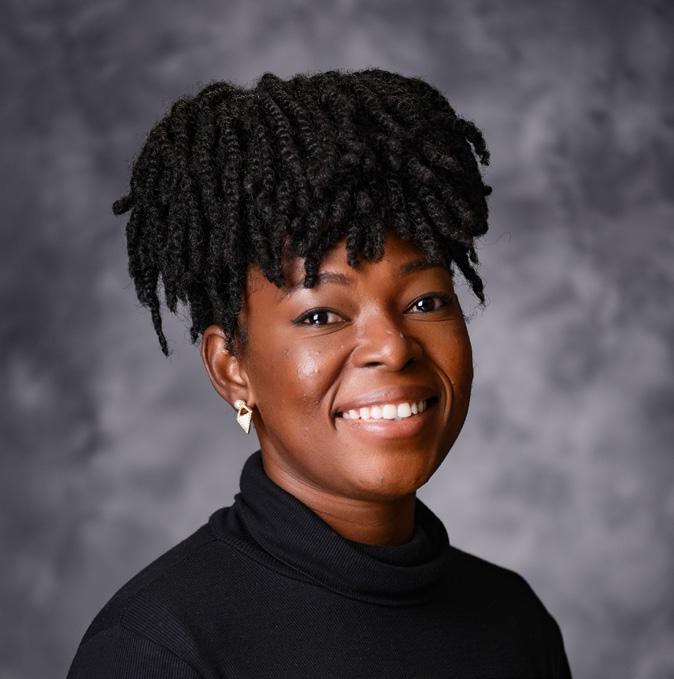
Dr. Akua Adu-Gyamfi
Assistant Professor Agricultural Leadership Department of Agricultural Business and Education
Dr. Akua Adu-Gyamfi joined the College of Agriculture in the fall of 2024 as an Assistant Professor in Agricultural Leadership. She joined the Department of Agricultural Business Education upon arriving on campus and as hit the ground running, teaching undergraduate classes on plant genetics and performing research at the forest ecology lab.
Akua began her education in agriculture in her native Ghana, where she received her bachelor’s degree in 2007. She arrived in the U.S. shortly after where she began graduate studies at Auburn University, gaining a master’s degree in rural sociology before getting her Ph.D. in agriculture education in 2024.
“I am continually inspired by our students in the College of Agriculture— their passion for learning, dedication to their coursework, and commitment to excellence in all they pursue,” she continues. “I look forward to the upcoming academic semester and the opportunity to engage with new students as they begin their journey in agricultural studies.”
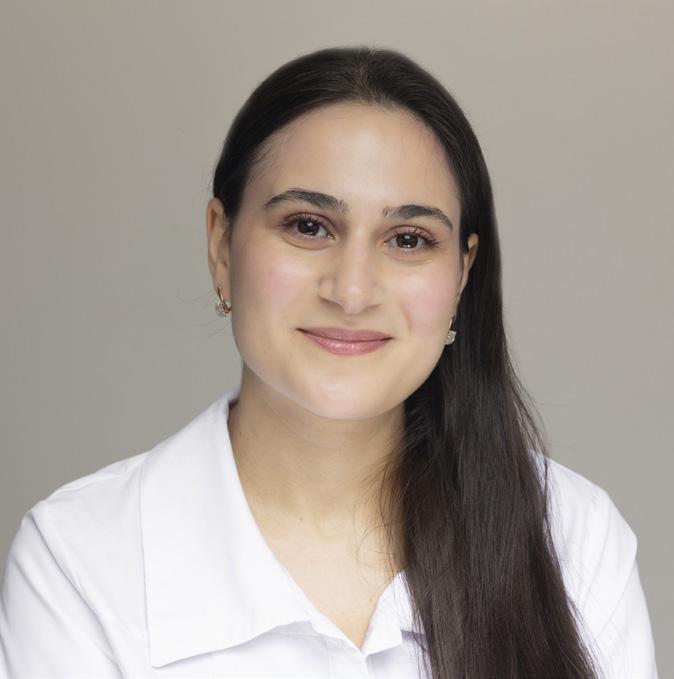
Dr. Armine Poghosyan
Assistant Professor and Extension Specialist in Agricultural Economics
Department of Agricultural Business and Education
Dr. Armine Poghosyan joined the College of Agriculture in the fall of 2024 from Virginia Tech, where she acquired both a master of accounting degree in data analysis and applied statistics and a doctoral degree in economics. The Armenianborn agricultural economist also did some of her formative education at Texas A & M, where she both did her master’s degree education and taught.
Dr. Poghosyan’s teaching experience dates to her time at A&M, where she taught a handful of classes while acquiring her master’s. Her teaching background continued at Virginia Tech during the time she acquired her Master’s of Accounting degree and Ph.D. At Tennessee State, she’s hit the ground running already teaching a total of seven classes in her first year at the College.
“I appreciate the opportunity to teach and engage with students,” she says. “Seeing them grow intellectually and professionally is incredibly rewarding and reminds me why I value being part of an academic community”

Dr. Gabe Spandau
Assistant Professor and Extension Specialist
Agricultural Communication Department of Agricultural Business and Education
Dr. Gabe Spandau arrived to TSUAg fresh off acquiring his Doctor of Philosophy degree from the University of Florida in Agricultural Education and Communication. We were excited to prize Spandau away from Gainesville, where he’d attended school as an undergraduate and a doctoral student.
Gabe’s background of agricultural communication, education and leadership will fit nicely at the College, where his expertise in audience analysis, message framing and innovative tools for outreach will fill a need. Gabe’s prior research has focused on cannabis contamination and safety, social responsibility and sense of place through virtual programming, contributing to public and industry education.
Gabe’s work in communications technologies includes podcasting, videography, virtual technology, A.I. and photography. Helping Extension professionals and agriculture stakeholders effectively convey messaging is Spandau’s passion. “I am excited to work with students and get more involved with the Cooperative Extension System,” he said. So are we, Gabe. So are we.

TSU’s Land-Grant mission and the quest for a heat-tolerant Tennessee tomato | By Charlie Morrison
When Tennessee State University (TSU) became a nationally recognized 1890 landgrant university in the late 1950s, it adopted an ethos, a way of operating, a guiding framework that would become its own, the land-grant mission. The three-part land-grant mission of academics, research and Extension would guide the institution for the better part of the next seven decades, pushing the faculty, staff and students at the College of Agriculture (TSUAg) to enhance the quality of life for individuals and families across the state, with each semester and each season.
And as we enter the fall of 2025, the mission continues. The College is now home to 25 specially designated Extension faculty members, whose research focuses largely on bettering outcomes for the state’s agriculture community and performing research to answer questions on issues affecting Tennessee farmers. The College’s now 63 Extension offices facilitate the sharing of the knowledge generated by that research, and the cycle continues.
Ideally, the mission begets a back-and-forth level of communication between the College’s researchers and the farmers of the state and that was the case with the Tennessee tomato, which in 2024 endured a difficult growing season as elevated temperatures persisted. Tennessee growers sought help.
In September, growers approached TSUAg Research Professor Dr. Suping Zhou at the College’s signature Extension event, the Tennessee Small Farm Expo, with a plea to help find a solution. With Zhou’s willingness to say ‘yes’ to the challenge of finding out why, the quest for a better tomato for Tennessee had begun.
The quest for a better, more heat-tolerant tomato was initiated by Dr. Zhou’s interaction at the Expo, but it truly gained steam when her winter 2024 application for “rapid response” USDA National Institute of Food and Agriculture (NIFA) funding was approved to the tune of $300,000.
Zhou’s aim with the grant funding is to find a better system to grow in Tennessee summers. Alternative tomato varietals, varying artificial sods, three distinct plots of land were to be considered and the project leaned on a pair of precision agriculture technologies to measure results. The goal of the project is a new methodology for putting more heat-resistant tomatoes on Tennessee tables in the near future.
The funds, dispersed as part of NIFA’s Rapid Response to Extreme Weather Events Across Food and Agricultural Systems program, allowed the project to really take shape, as it allowed Dr. Zhou to bring on graduate assistants and a student researcher.

A trio of graduate students signed on to work the project with Dr. Zhou: Jing Zao, Jun Guo and Madhavarapu Sudhakar. Joining them on the project was senior, now recent TSU graduate Katrina Seaman, who stayed on with Dr. Zhou after graduation to take part in the research as the project manager. One of Seaman’s tasks is heading up the outreach effort for the project, and it she that puts the work into laymen’s terms.
“Whether you chop them for a salad, slice them for a sandwich, mash them for a sauce or can them, tomatoes are an important consumer product, but especially to the small and medium-sized farmers in Tennessee,” said Seaman. “The problem is that throughout the summer we had too many days of sustained high temperatures, and that decimated tomato yields.”
“This experiment, the reason why I was so excited to jump on board and stay on at TSUAg after graduation to work on this is that it was the farmers who identified this problem for us,” she continued.
With the grant in hand and students and graduate assistants on board, the project kicked off with Dr. Zhou’s hunt for three farms to partner with. The team needed three distinct growing environments to use as a basis of comparison. Other variables included the varieties of tomatoes, the use of mulch and the introduction of grafted plants, but the first hurdle was finding those private partners with track records and gravitas in the Tennessee farming community.
Leaning on tomato industry contacts fostered over years, Dr. Zhou was able to secure partnerships with a trio of reputable, established farms that were geographically disparate and offered different setups for the trials, Tony Eldridge from Eldridge’s Farm in Woodlawn, Troy Smiley from the 220-year-old
Ridgetop-based Smiley Farm and Wayne Moss from Little Creek Produce in Cookeville.
According to Zhou, any project that partners TSU with the agriculture community begins with their anecdotal knowledge.
“Talking to the farmers really helps us to understand what we should be doing with our research,” says Dr. Zhou. “Sometimes we understand the biology of things without fully understanding the study in practical terms. Projects like this help us reconnect.” Each farm will feature a different growing environment, different varieties and different mulch.
Proprietor Tony Eldridge will be managing a combination of grafted tomato varieties and his own non-grafted Mountain Fresh tomatoes in his part of the study, both of which have been planted in a pair of raised high tunnels. In the first, Eldridge and the TSU team are growing alternating rows of grafted versus non-grated Mountain Fresh tomatoes. In the other, he has grafted plants, over 800 in total. Eldridge also has in-ground, open field grafted vs. non-grafted plants, planted in alternating mulches, red, black and silver, in addition to non-plastic mulch rows.
The Smiley Farm will experiment with grafted versus non-grafted varieties planted in an open field comparing the three plastic mulches. Troy has planted over 600 grafted cultivars he is using are Cherokee Purple, Pink Delicious, Jolene, Florida and BHN 589, the results of which are being measured by Spiio sensors are gathering data in the ground and in the air (future plant canopy).
At Wayne Moss’ Little Creek Produce, the team is testing grafted BHN 589 tomatoes growing in coconut coir in a heated hoophouse for early spring production as well as in-ground Mountain Fresh grafted plants being grown beneath high tunnels without experimental mulches. Moss planted over 1,000 plants this spring.
“What I’m taking away from this as I look at venturing into Extension myself is that that collaboration is at the very heart of this work. We’re taking decades, generations of experience from the farmers and then applying the resources we have available, and it’s a mutual learning experience... that’s my favorite part.” For the farmers who are participating in the project, it’s a win.
“I thought that it may do some good and that we may
learn something,” says Smiley with a grin. “And I ain’t gotta’ pay college tuition to do it.”
As the team will be making recommendations on the types of tomatoes, mulch and growing environments Tennesse growers should embrace to mitigate rising temperatures, they need actionable data. Enter agriculture science company Syngenta, who partnered with Dr. Zhou on the delivery of the company’s ‘Spiio” sensors, with which the team will gather data on the respective environments. The Spiio sensors gather data in the substrate and air, giving the team the ability to combine the evidence they could see with their own eyes with real-world data demonstrating that.
“We’re using them to gauge the salinity, connectivity, moisture, light and temperature there is in the microclimates around these tomato plants at the canopy level and in the soil as they grow throughout the year,” said Seaman.
“And from all of that, we are looking for a climateready tomato production system at the end of this project that we can take to farmers across Tennessee and say ‘based on these findings here are some practices that will help you get through the hot summers we’re having and still get a bunch of tomatoes out of it.”
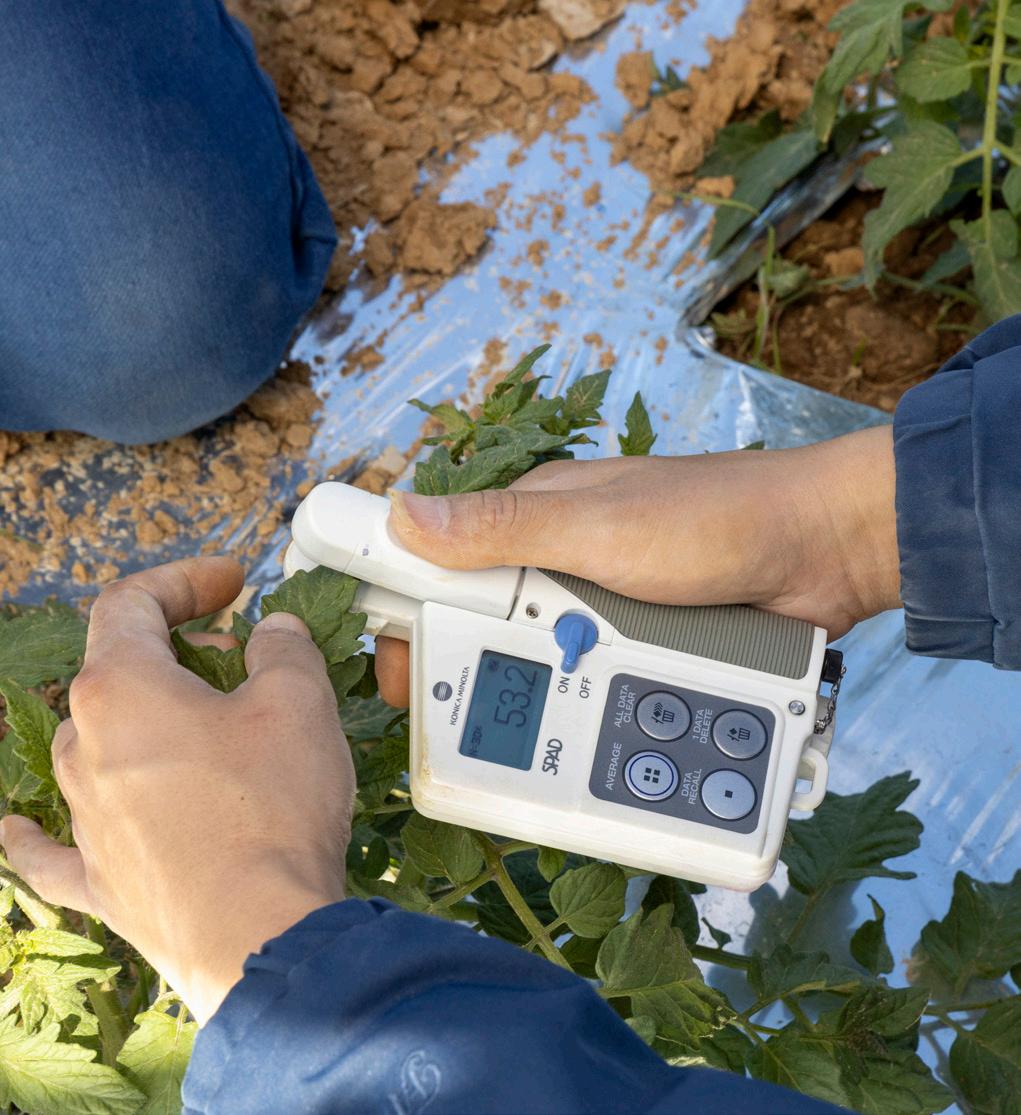
With the USDA NIFA grant secured before 2024 ran out, Dr. Zhou had the entirety of the year to utilize in planning and executing the complex, three-site experiment. She secured her working partnerships with the three farms so that even before winter gave way to a frost-free spring, the project could start in earnest with plants going into the ground first in greenhouses, then later in hoop houses and outside in the unadulterated ground. March saw the TSU tomato team make farm visits to ensure that greenhousebased plants were progressing, hoop house plants were started and the outside plants had been situated. The group began to take soil meter measurements and install the technology.
April saw the group visit each of the three participating farms to install the Spiio sensors. At the Little River Produce greenhouse, three sensors were set up by graduate research assistant Jun Guo, two measuring the soil and one the air, and proprietor Wayne Moss himself was given an iPad with software running on it so he could monitor the results himself.
They did the same thing a week later at the Eldridge Farm, installing a further three there, one in the hoophouse, one in the non-grafted tomato plot soil and a third for the aerial space data. A week later, Dr. Zhou Sudhakar and Seaman traveled to the Smiley Farm. By the end of April, the Spiio sensors were installed, calibrated, reinstalled and troubleshot, soil samples had been collected soil samples for microbiome analysis and the complex, pattered layout of mulches had been arranged. By May, the project was a go.
May saw the final grafted tomatoes arrive and be planted at the three respective farms utilizing a detailed planning map outlining the planting order and planting plan with the different varieties and the different mulches. The complexity was mitigated by Zhou’s experience.
Zhou and Seaman have siezed on a number of opportunities to present the project to their peers both before, during and after the group gets results. In late March, Seaman presented the specs of the project to the TSU research community as part of TSU’s 47th Annual University-wide Research Symposium.
It will be the team’s final recommendations, data and findings disseminated at the conclusion of the
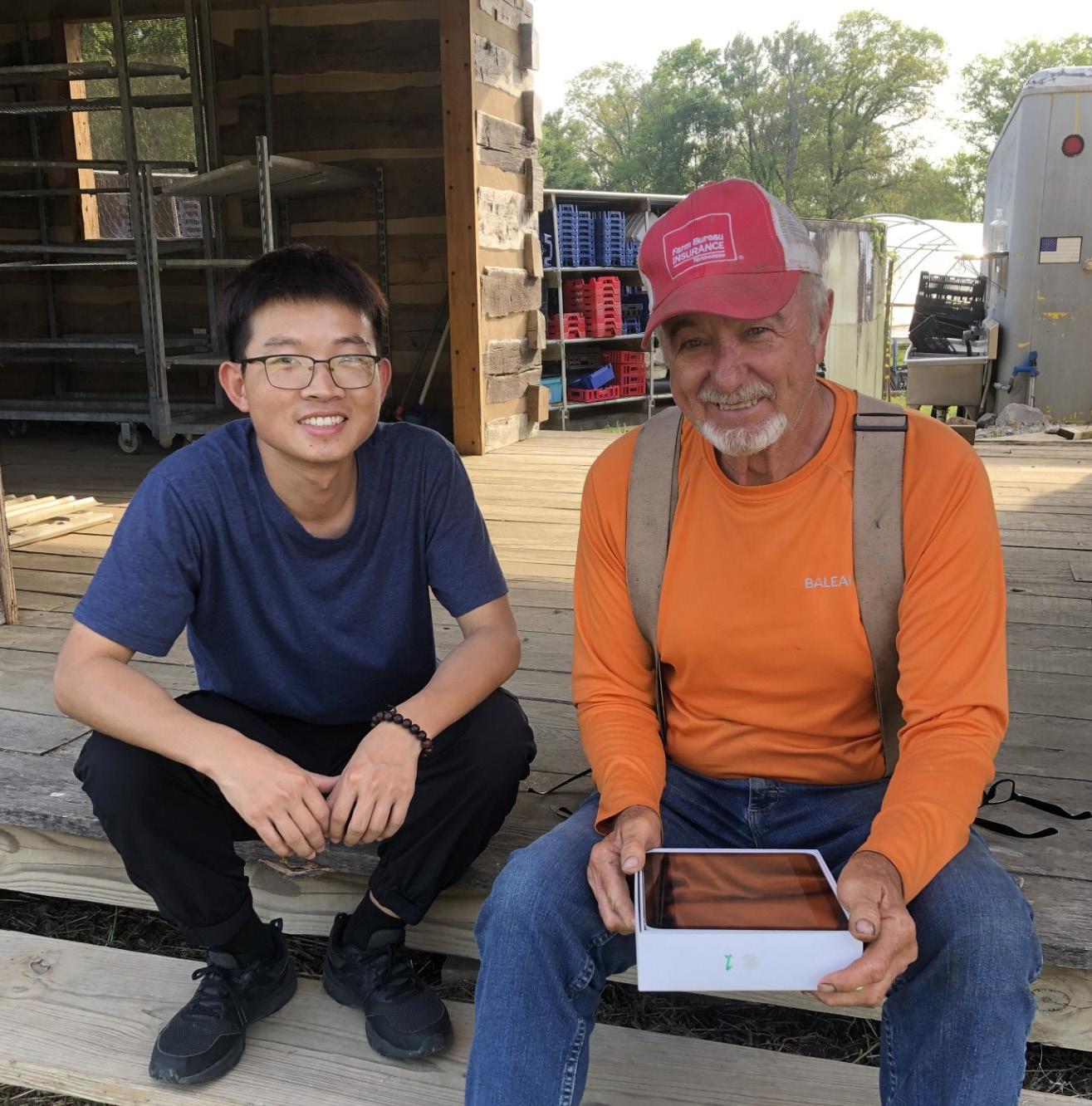
project that will likely carry the most influence. That process started in May when Seaman began rolling out dedicated social media accounts documenting the Rapid Response Tomato Project. Later this fall, Seaman will run point on the task of sharing proposed content with farmer partners, a process that is in effect the crux of the project.
The group will embrace on-site, hands-on communications as well. At time of printing the group is scheduled to present the scope of the project along with early findings along to guests of a July 8 Field Day to be held at Little Creek Produce. The goal of that event is bring producers who also use hoophouses and greenhouses from the whole area to share best practices and current challenges.
According to Seaman, the crux of the project is to communicate the data to producers who typically communicate in anecdotes. Bringing the science in alignment with the art of the farmers is where the project can really benefit Tennessee tomato growers going forward.
“You acknowledge the merits of the conventional wisdom as it was the conventional wisdom what identified the problem in the first place,” she says. “But then you do find trends, causational trends between the two. Implementing practices to work around that and sharing those practices through Extension is the best way to get the information out fast.” AL
TSUAg graduates scores of undergraduate and graduate students in May ceremony
The College of Agriculture said goodbye to an amazing class of 49 undergraduate and 13 graduate students at the May 2 and 3 graduation ceremonies held on campus. It was a class that came to the College during the Covid 19 pandemic, work with the College’s transition to five academic departments, straddled three University Presidents and endured a lingering University financial crisis.
They persevered. They powered through difficulty. They graduated.
We’re so proud of each and every one of these talented undergraduate and graduate students, each of whom has grown tremendously in their time here on campus. And while we look forward to seeing some of them continue their educational journeys with us right here at TSU as master’s or doctoral students, to those moving on to pursue their dreams elsewhere, we wish you the best.

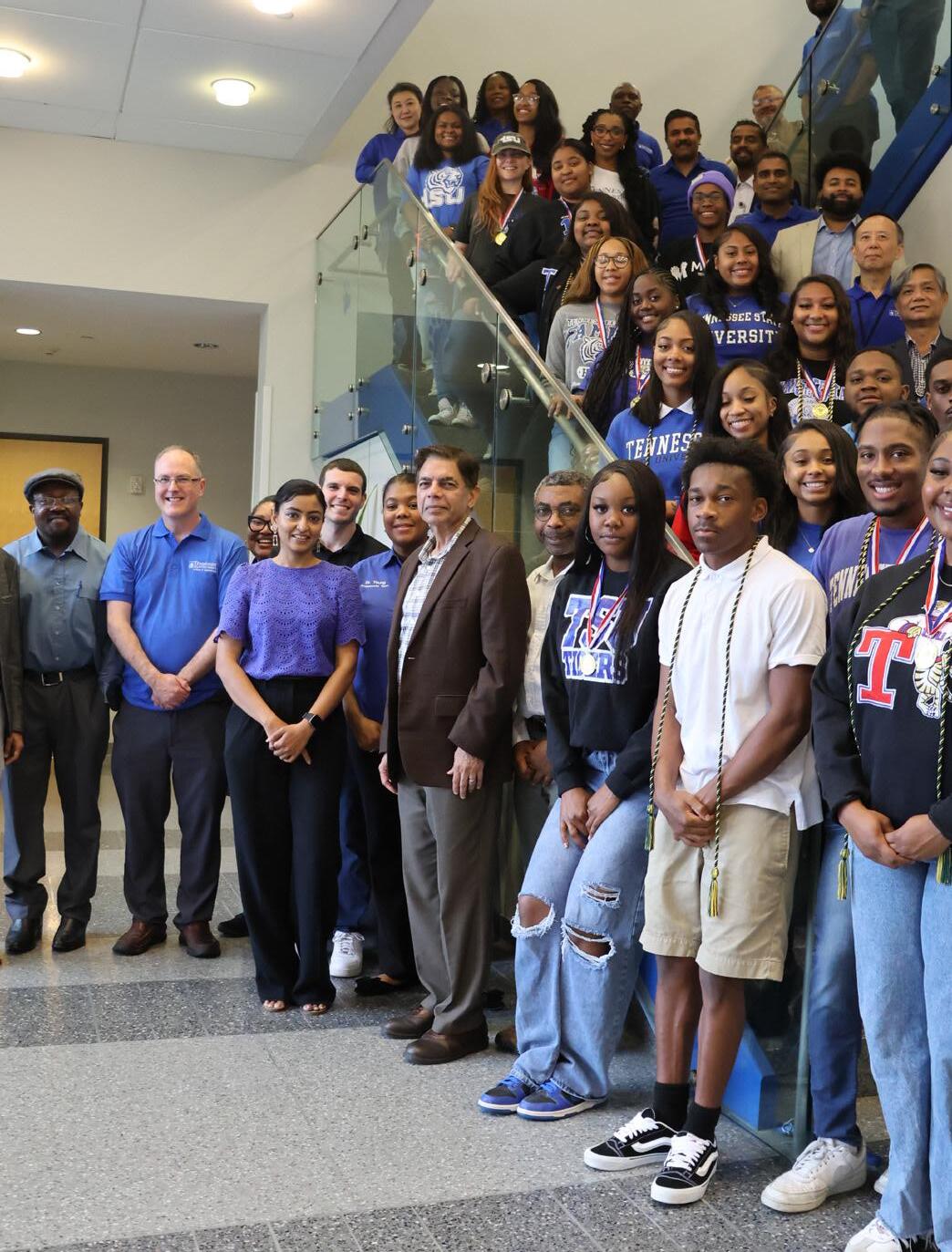

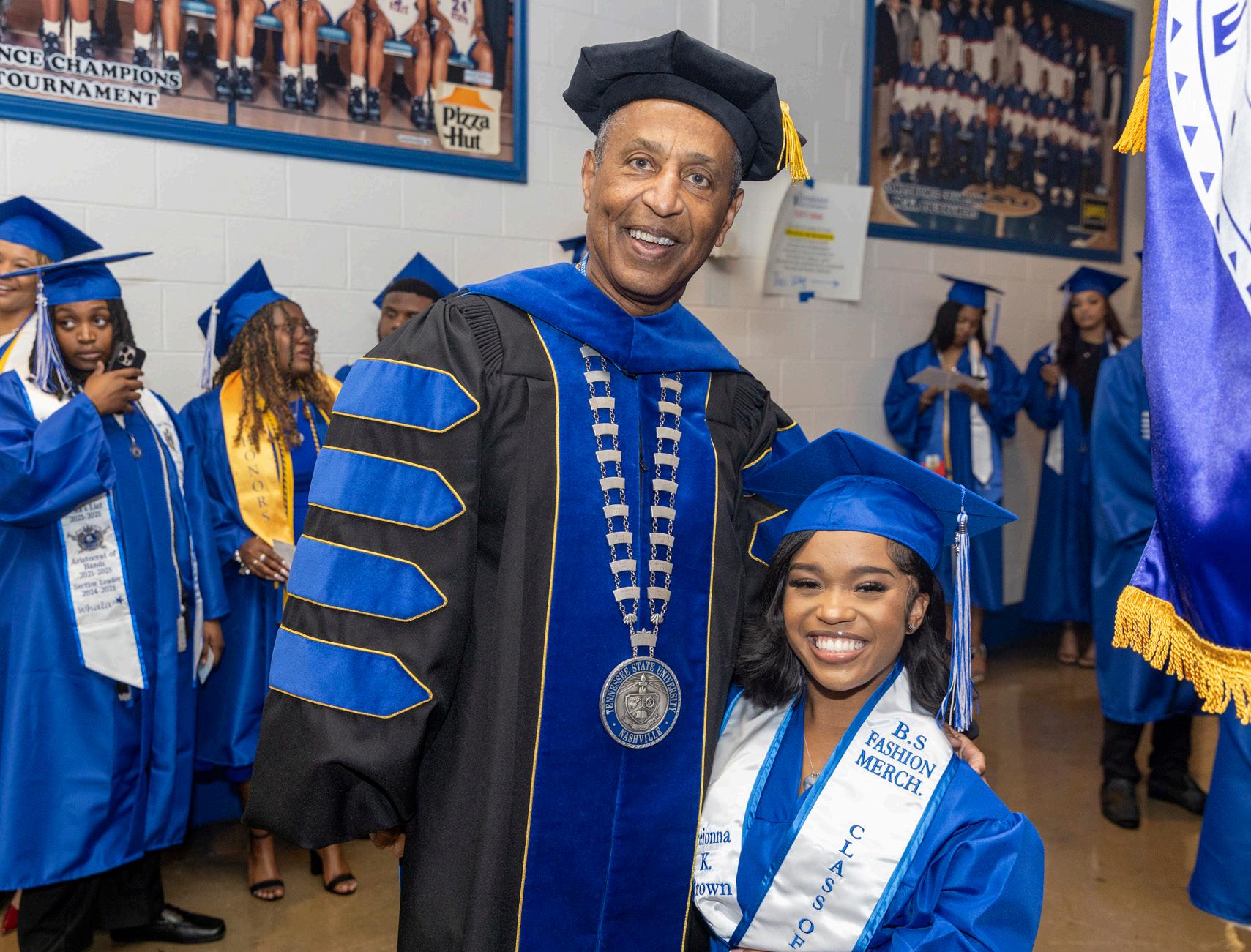



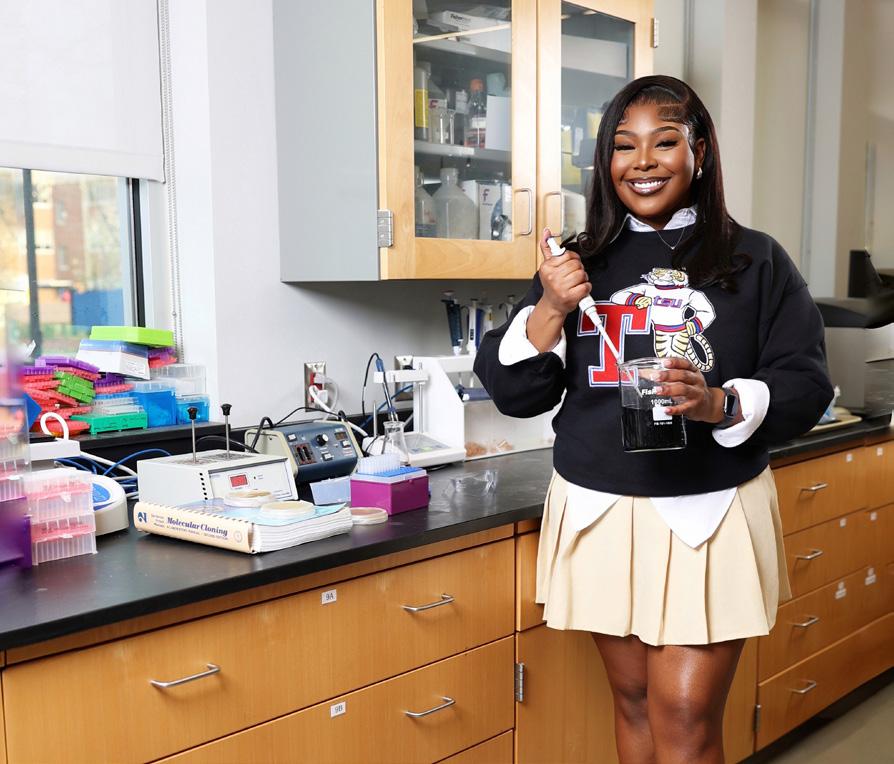


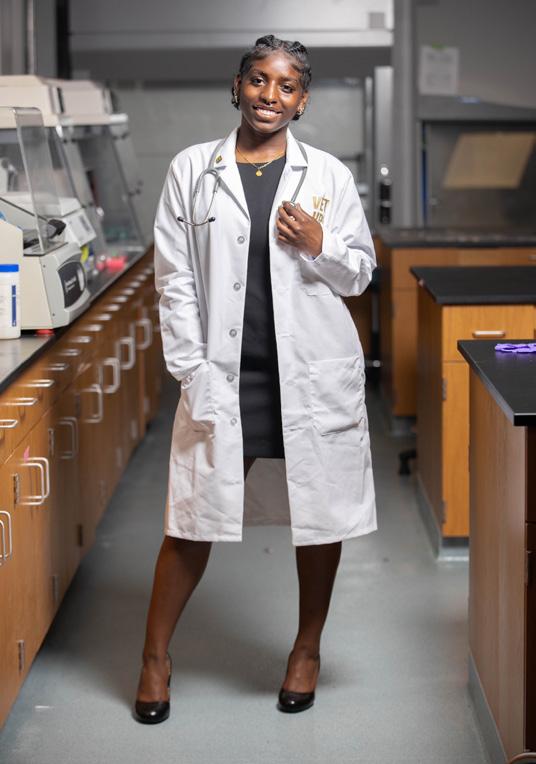
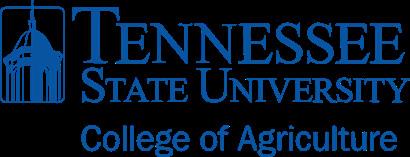
Stay Connected!

@tsucollegeofagriculture


@tsucollegeofag

@tsucollegeofagriculture

TSU College of Agriculture
TSU College of Agriculture
Tennessee State University College of Agriculture (615) 963-7561
www.tnstate.edu/agriculture

Tennessee State University College of Agriculture
3500 John A. Merritt Blvd. Nashville, TN 37209
